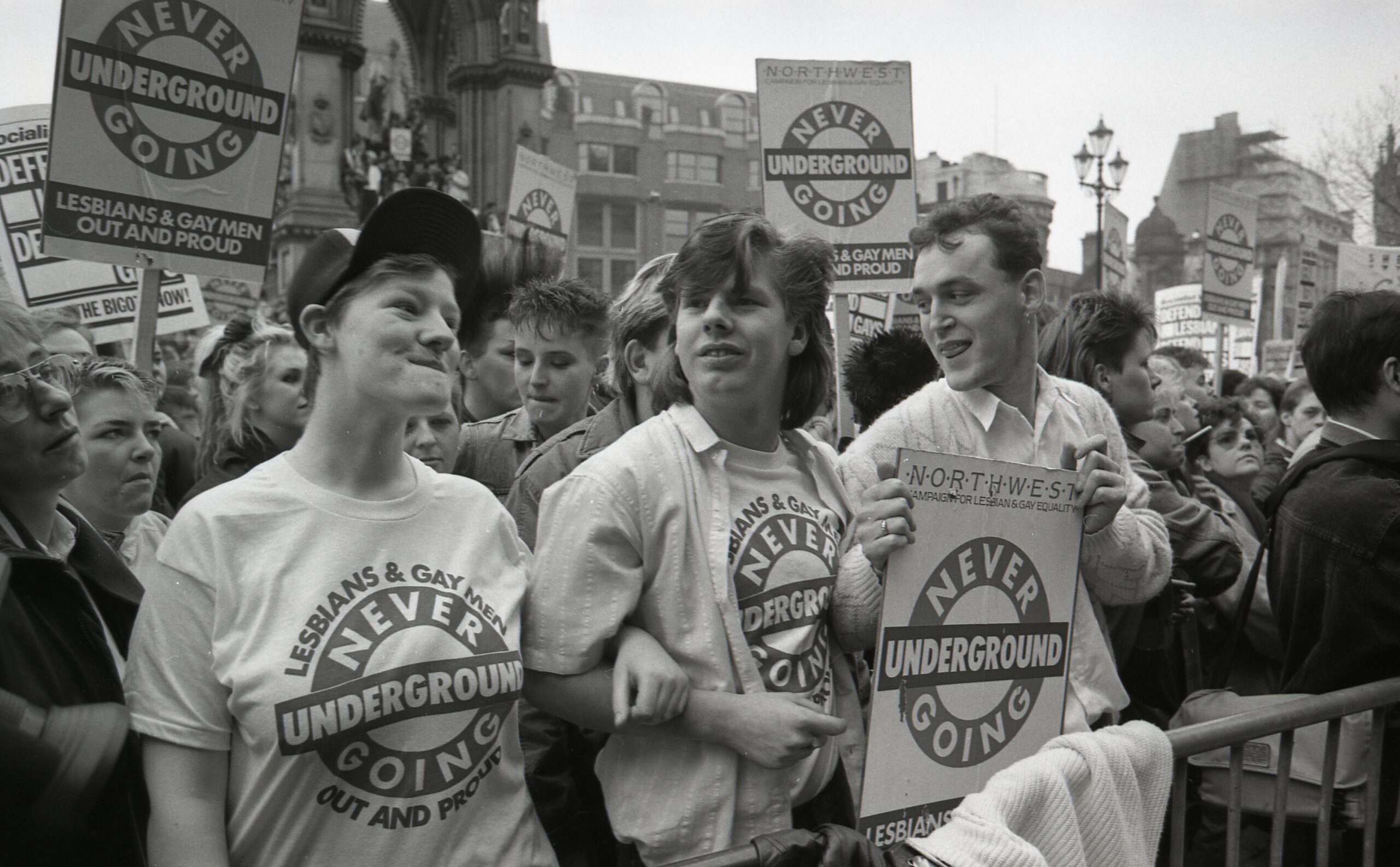
Never Going Underground
Collected by Dan Glass

For Pride 2023 I’m over the moon to have curated this special ‘LGBTQIA+ collection’ for ‘Amplified Voices - Turning Up The Volume On Regional Youth Culture’ for the brilliant ‘Museum of Youth Culture.’ It is such an honour to share this collection of absolute legends across the UK who have brought so much Queer Love and Power to everyone they meet with their art, activism and movements for social justice. Here they reflect on their journey from queer youth to today. I hope it brings you all hope and joy in abundance.
This year, 2023 is the 20th anniversary of the overturning of 'Section 28' that forbade the promotion of homosexuality in public institutions). The chants of 'Never Going Underground' and ‘Lesbians and Gay Men – Out and Proud’ still speak volumes today. With the latest Conservative government attack on our Trans community as the government is intent on digging up a decades-old statute called ‘Section 35’ to veto the Gender Recognition Reform (Scotland) Bill - remembering the strength and vitality of our people and movements has never been more important.
Dan Glass is an ‘Aids Coalition to Unleash Power (ACT UP) healthcare and human rights activist, performer, presenter and writer. Dan has been recognised as Attitude Magazine’s 'campaigning role models for LGBTQI youth', a Guardian ‘UK youth climate leader’, 2017 'Activist of the Year' with the 'Sexual Freedom Awards' and was announced a 'BBC Greater Londoner' in 2019 for founding 'Queer Tours of London - A Mince Through Time. Dan's new book 'Queer Footprints - A Guide to Uncovering London's Fierce History' can be bought in our bookshop'. You can follow him on Instagram here
Dan's research project was part of Amplified Voices: Turning up the Volume on Regional Youth Culture, supported by the National Lottery Heritage Fund.
collection of stories
Sadiq Ali
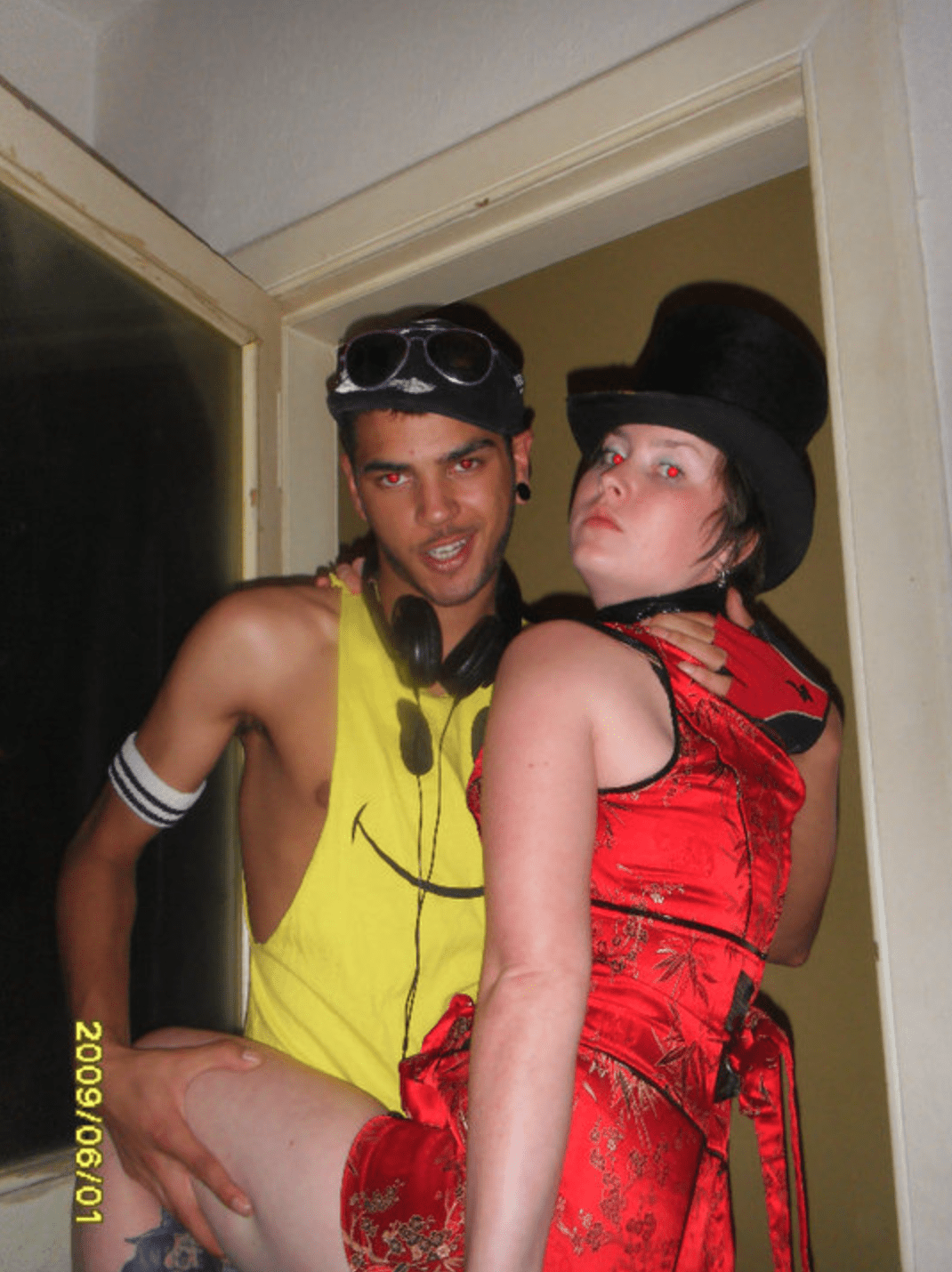
Rudy Harries
I grew up in the Valleys of South Wales as a Jehovah's Witness, which was difficult and traumatic as a queer child. These photos are from 2008 and 9, when I was 13/14. I was always very different from my peers but didn't know being gay was a thing until I saw Ianto kiss Captain Jack in Torchwood. I met my first trans person at 18 at university and came out as a trans man a few years later. As an adult I would go on to set up Trans Aid Cymru, a mutual aid group to support trans, intersex and nonbinary people in Wales.
Nowadays I'm predominantly a writer though I still dabble in activism and public speaking. I've watched a thriving and diverse queer community grow in Cardiff, and that gives me so much hope for the future. Just 15 years ago we had a few bars for white cis gays men and now there's a whole eco system of support for all kinds of queer people!
You can follow Rudy on Instagram here
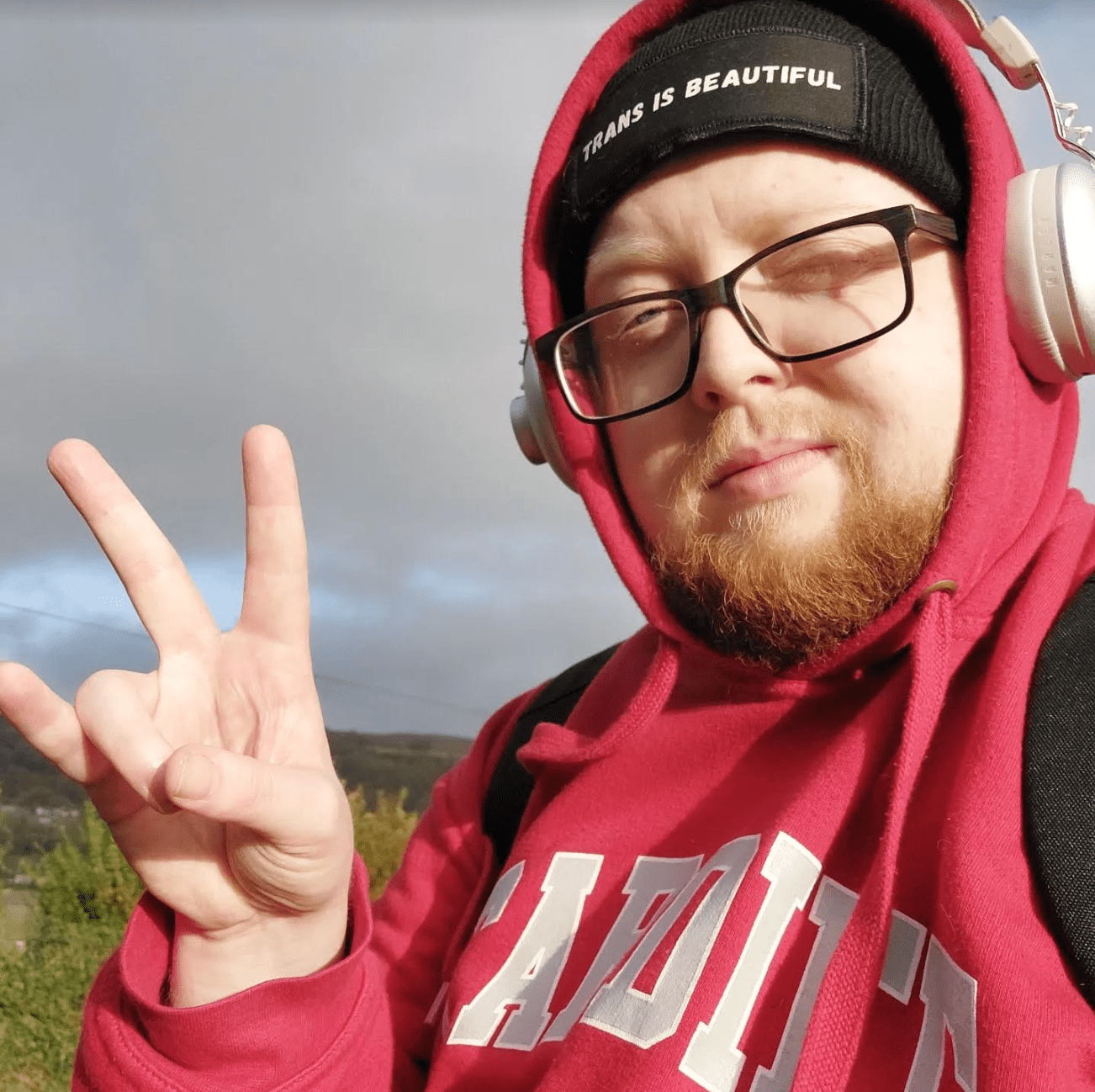
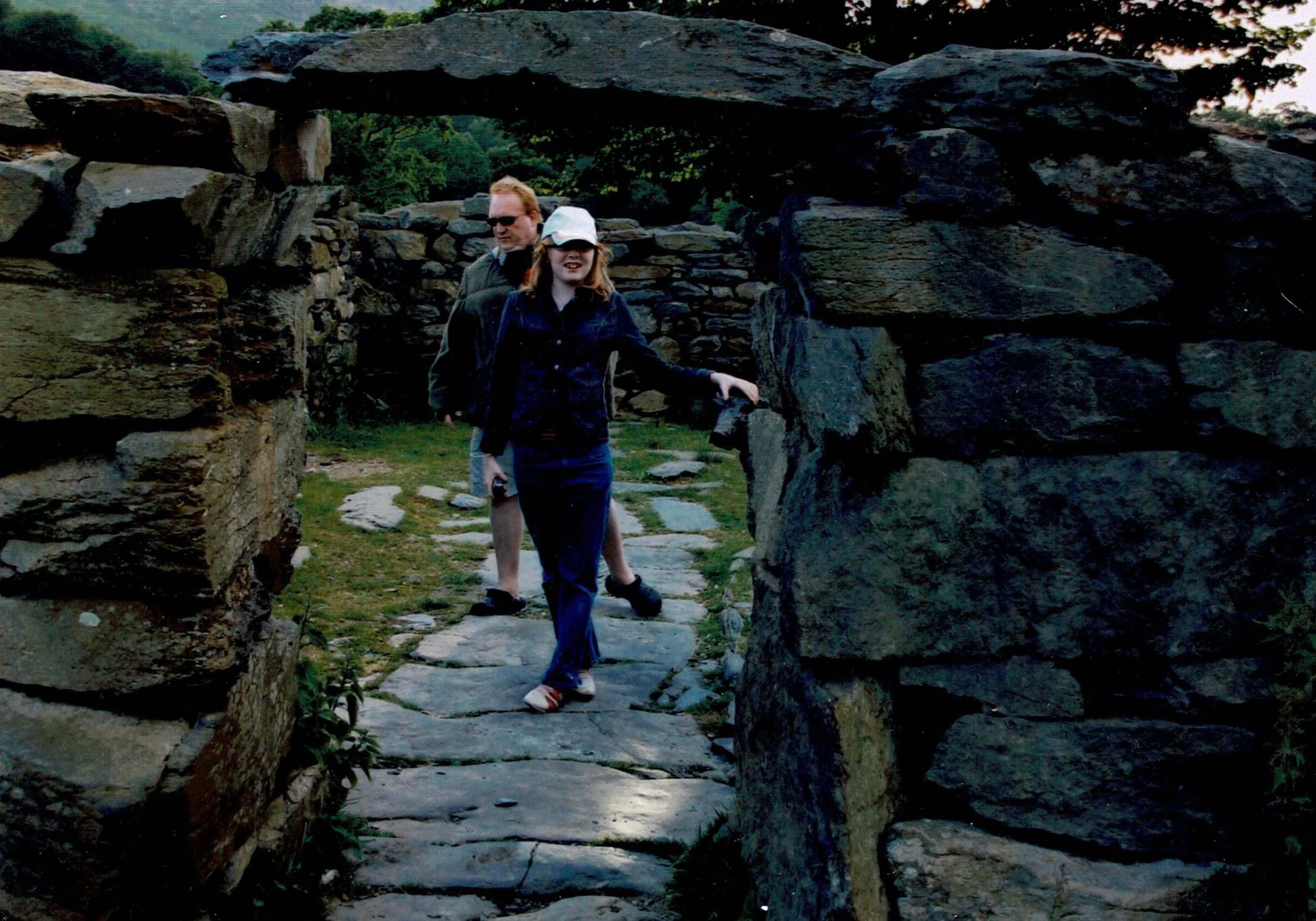
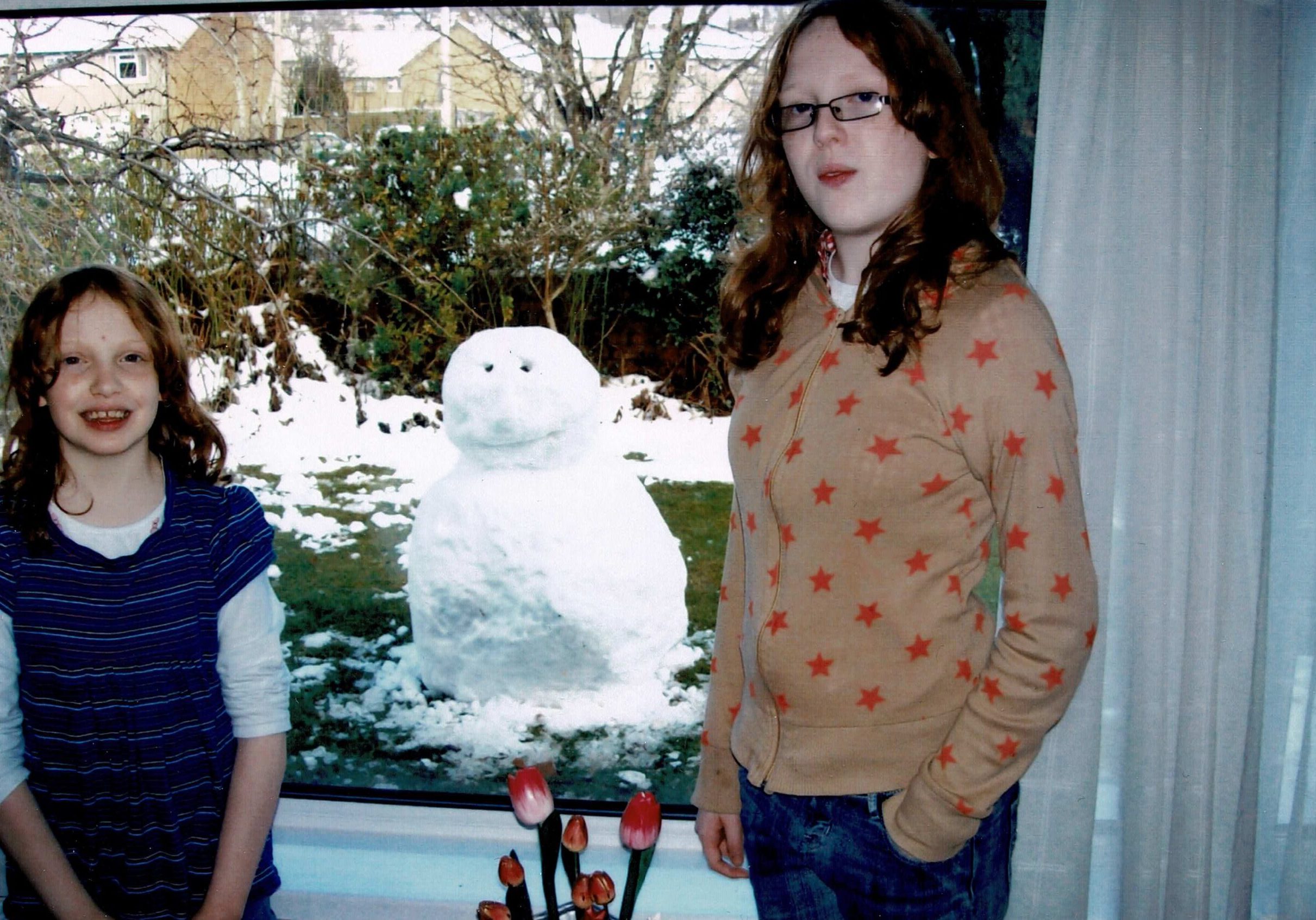
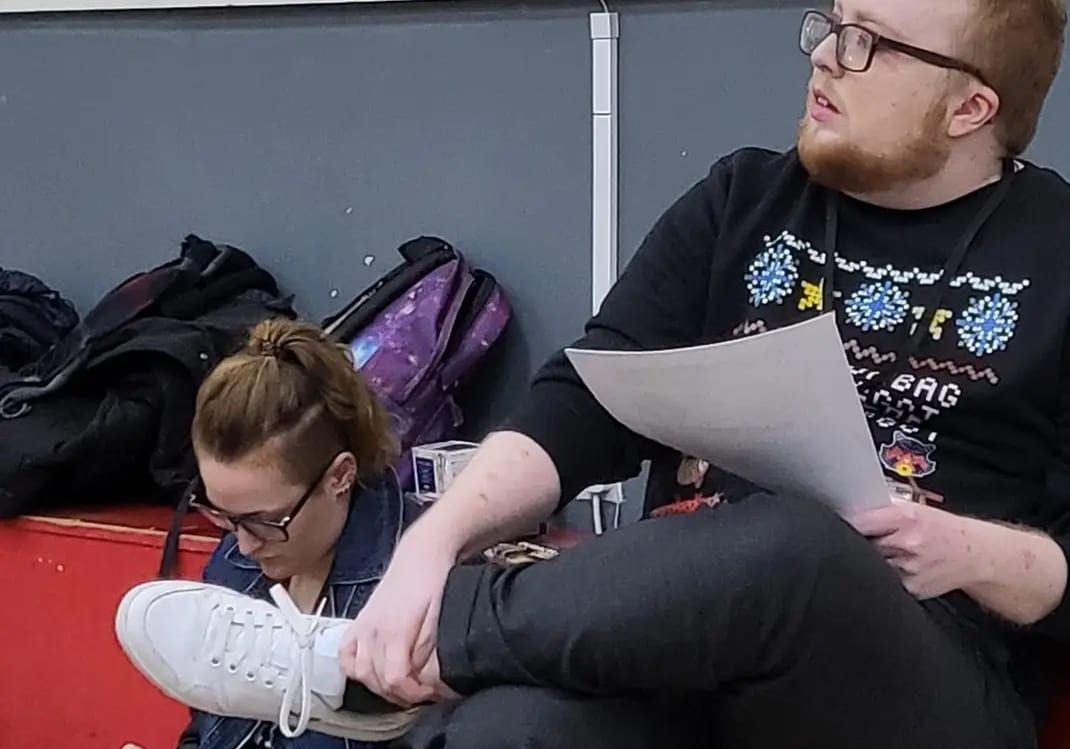
Shivani Dave
I feel like the first time I saw colour was aged 15. Growing up in Middlesex, on the edge of London my friends and I planned a big excursion to the city to watch a matinee. I was probably wearing jeans so skinny they were cutting off the circulation to my feet. On the way out getting lost in the then-unfamiliar streets of Soho, we stumbled into a spectrum of gender and sexuality. I’d never seen anything like it, I later realised that was London Pride. At the time I had a physical reaction, welling up, and feeling a knot in my throat. I still have those feelings looking back because to me, that was joy, it was possibility, it was a chance for freedom and liberation. Compared to the rainbow, everything else felt grey. I knew what LGBTQ+ meant, I’d argue with family over gay rights at gatherings ‘as an ally’, I wore flannel ‘cos it was practical’, I was even kissing girls ‘to practice’ but I’d never come face to face with anyone queer. I guess at that point I still hadn’t, it was more face-to-chest, as I stared mouth agape at a bearded 6 foot person wearing heels with their leg hair poking out of fishnets, a pair of hot pants, and a bikini top. At that moment, a friend grabbed my hand and pulled me in the direction of the fine dining experience of Wahaca. Over the next few months and years, I rode the tube from Zone 5 to Soho so I could take a glimpse at the possibilities of what my life could be.
Today Shiv is a highly-celebrated presenter, producer and journalist, find our more about their work here. You can follow Shivani on TikTok and Instagram.
Lip Wieckowski
'Looking at the pictures I feel kinda sad that I was so deep in denial and caught up in self hate when they were taken. It feels weird to do this now because Christmas 2022 saw me coming out as queer to my extended family - in an email of course coz I'm an 80s baby 'I am not Filip I am Lip, I am not gay I am queer, I am not a man I am non-binary, I am not he I am they.' It feels sorta powerful actually.’
As an adult Lip has spent the past decade working in the charity sector with a focus on environmental protection and social justice. Since coming back to London, they have found community with other LGBTQ+ folks through a climbing group that supported them through the pandemic, nurtured them to their own unique queerness and became the closest friends.
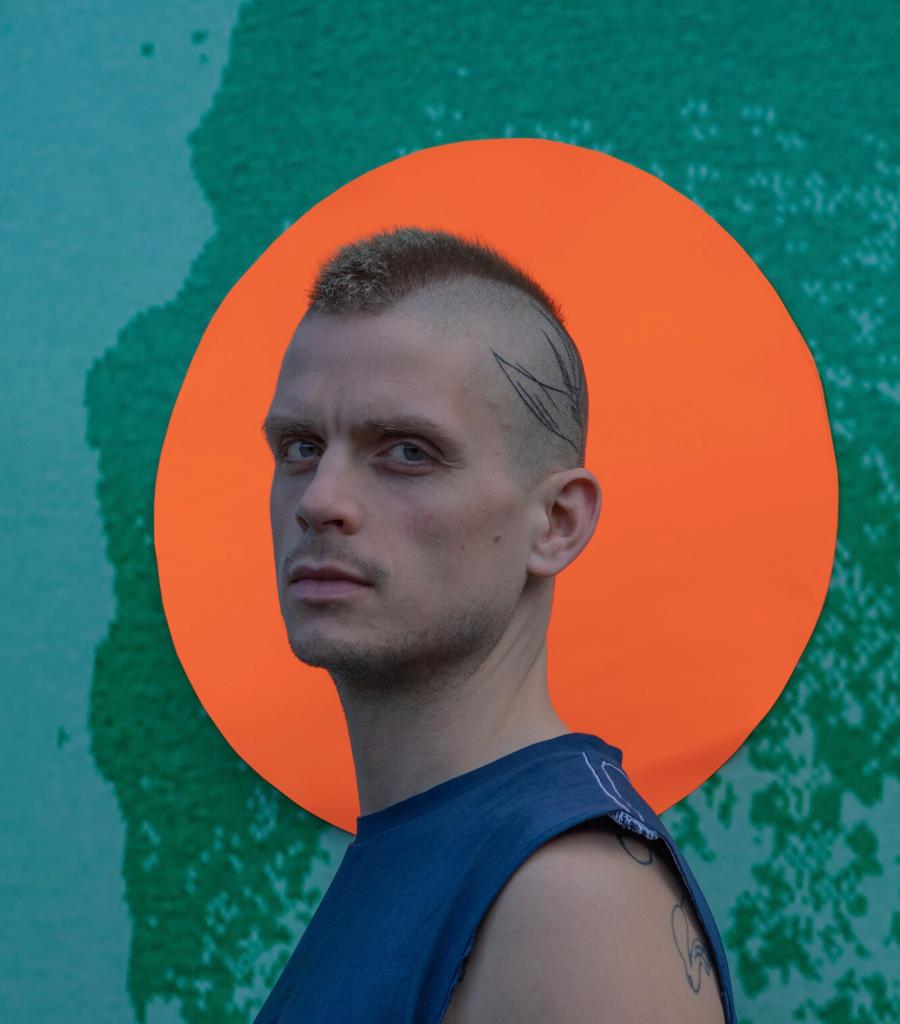
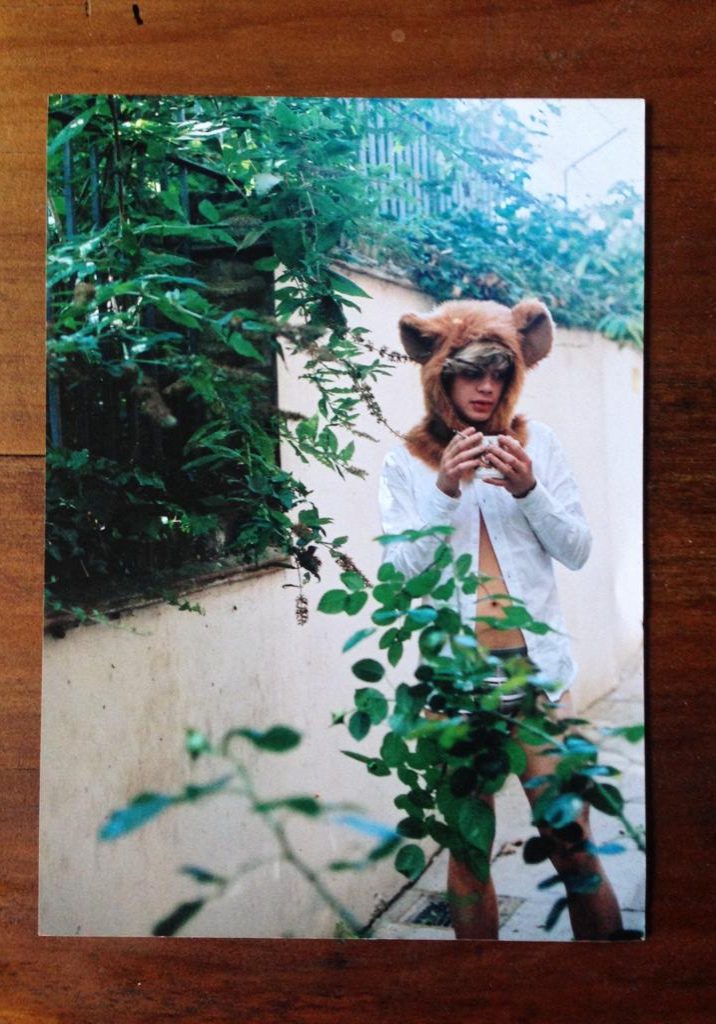
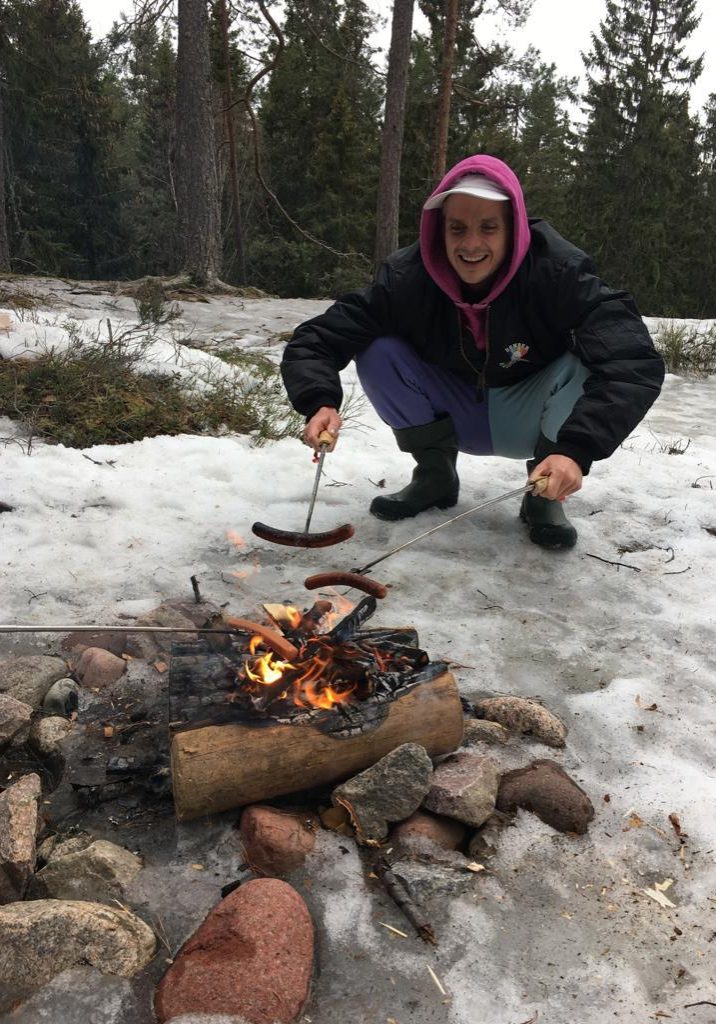

Lip became the first Centre Manager at The London LGBTQ+ Community Centre - a sober, intersectional community centre and café where all LGBTQ+ people are welcome, supported, can build connections and flourish. The Centre is a sober sanctuary, a place for groups combating isolation in the queer community, bringing different generations together in a friendly setting and working with some of the most incredible charities and groups to offer LGBTQ+-specific services, such as sexual health testing and mental health support.
Lip wants to create more spaces for LGBTQ+ folks to feel welcome, safe, loved and valued. When they aren’t working Lip is mostly pole-dancing. Pole has helped them interrogate, accept and celebrate their genderfuckery. They hope to bring more unapologetic, ungendered, uncensored representation for other queer people to join them in their own gender euphoria.
You can follow Lip on Instagram here
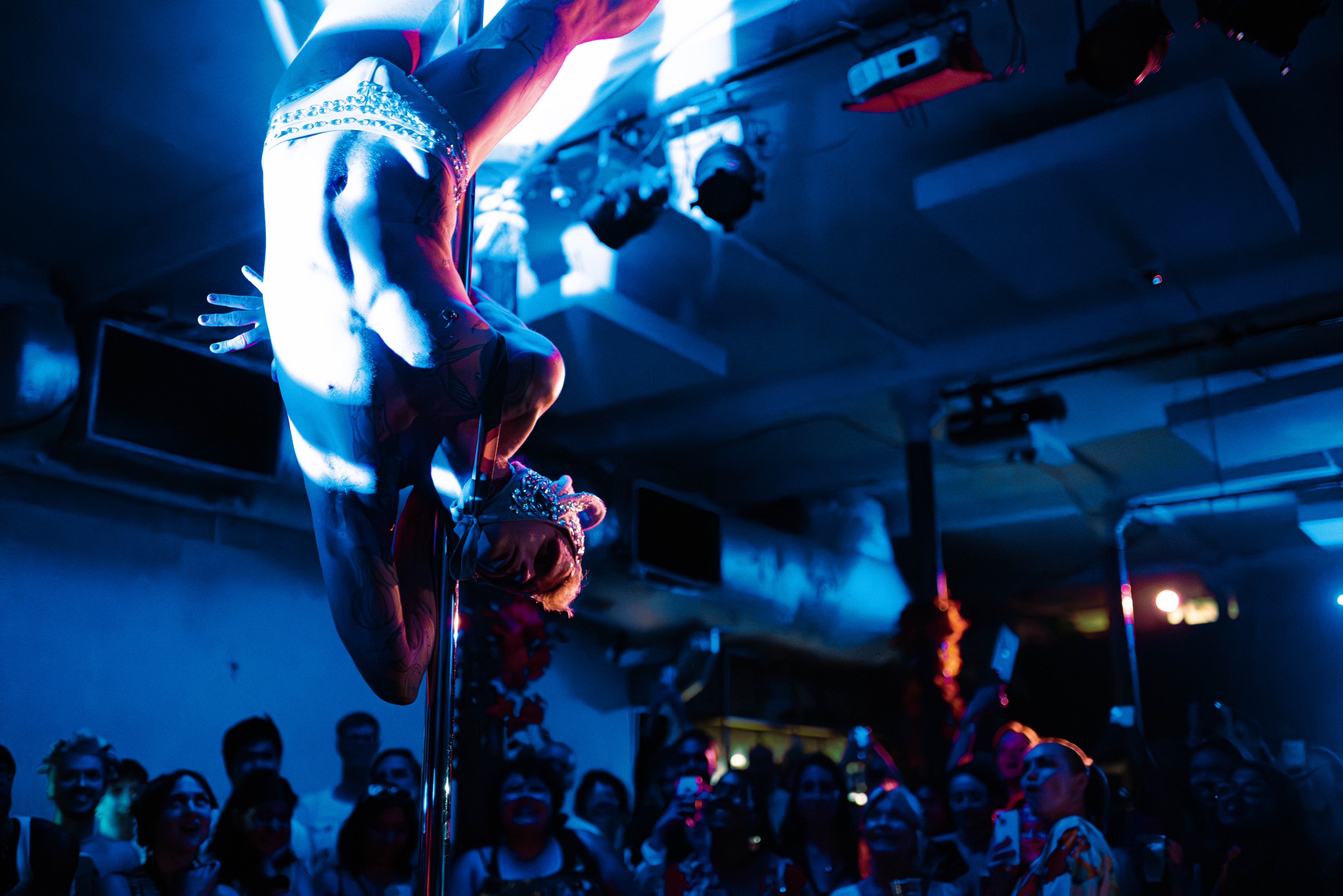
Lyndsay Burtonshaw
I grew up in a tiny town called Howden in the arse end of the shit bit of Yorkshire between Drax power station and Hull ice rink. There was nothing to do, so my best pal El and I spent a lot of time sneaking around the back of warehouses, abandoned houses, empty cropped fields, dirty house parties where we hadn't clocked, everyone was on drugs, we were like - these guys are weird drunks! We stuck together, each other’s saving grace from our dysfunctional families, and when we were 16/17 started clubbing LOTS in York, Leeds and Hull. Hedonism was LIFE - snogging competitions, always looking out for each other, we’d dance all night long. It took us beyond surviving - into being saved by those evenings of total exuberant joy. It was the era of fake IDs, Armand van Helden, minesweeping, limos picking us up in the streets for queue jumps and free prosecco, Princess Superstar’s Perfect Exceeder, chips at 4am. We spent all our waitressing money on the taxis home, and only those taxis. Dreamy. Music is always where I’ve found the expression I’ve needed to be involved in liberatory politics - mosh pits, house parties, raves, clubs.
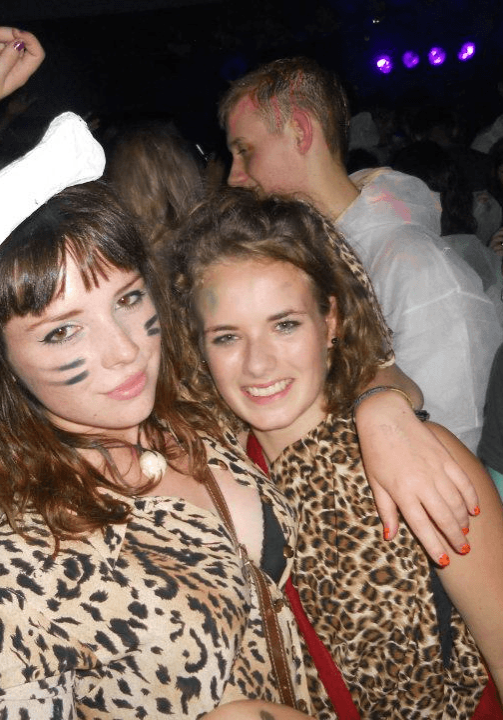
In 2018 I did Michael Twaits’ fantastic Art of Drag course at the beloved Royal Vauxhall Tavern. I was exhausted and burnt out, having just finished being on trial as part of the Stansted 15. We were a coalition of Lesbians & Gays Support the Migrants, End Deportations, Plane Stupid, and Detained Voices. We’d stopped a deportation flight at Stansted bound for Ghana and Nigeria, we tried to get the Home Office to be more humane to our queer African siblings and not brutally deport them to homophobic regimes - that British colonial policies had set up in the first place. Drag was creativity-life bringing - I love genderfuckery and performance, and never tried it before. It was also about reclaiming drag for me as a femme crossdressing as a masc king - there’s sometimes still misogyny from drag queens, and my first drag experience had been pretty horrific - the drag queen had clocked me and my then girlfriend as the only lasses in the room, and made a joke with a punchline involving semi-throttling me, so I wanted to own drag in my own way. I created and performed as Phil Mashitter - a likely lad, a lad about town, hoping vainly for glory, riches, pussy and BMWs. He’s pissing his life away in a variety of pint glasses, and awaiting the camp relief and enlightenment of sweet, sweet pop music.
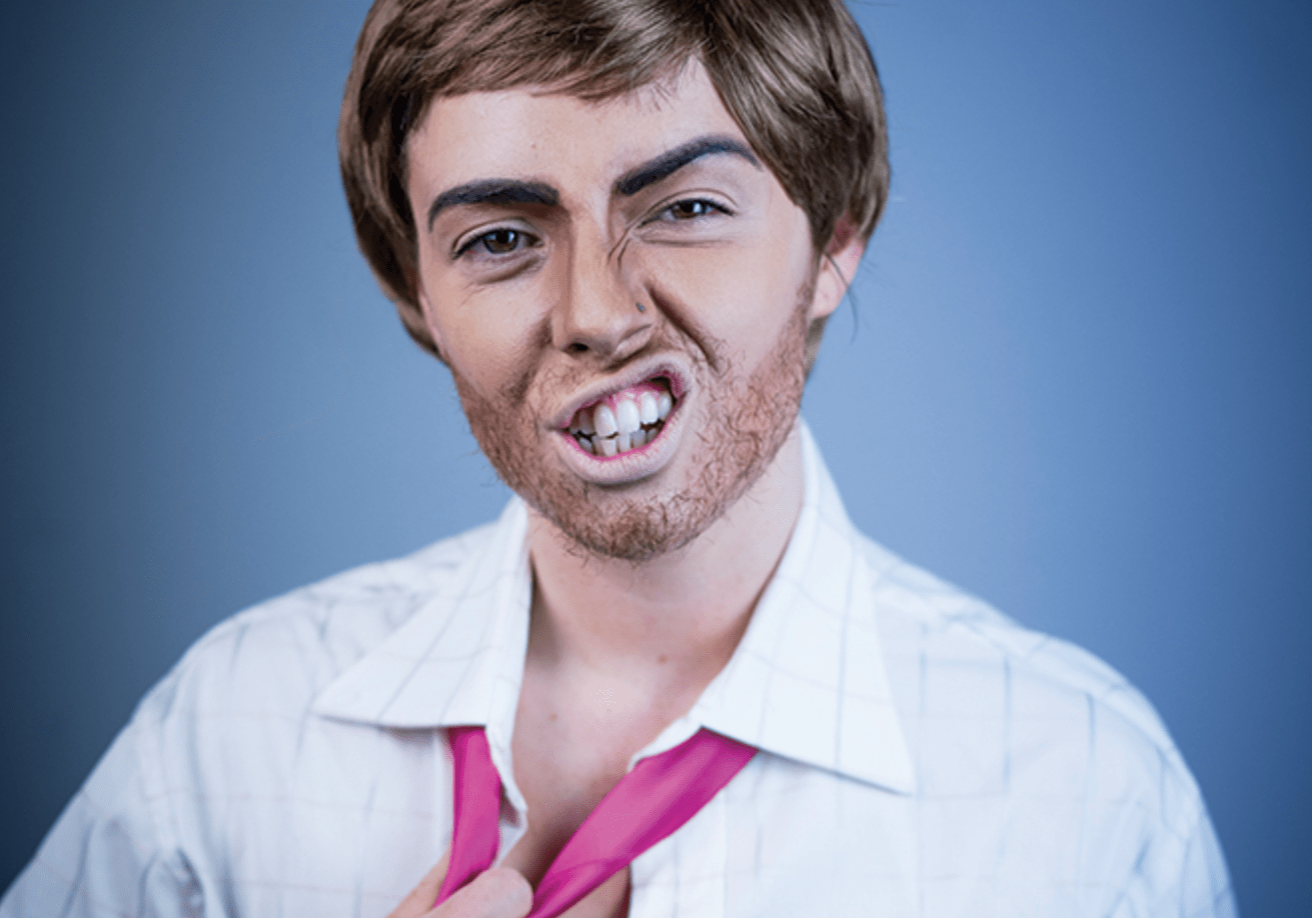
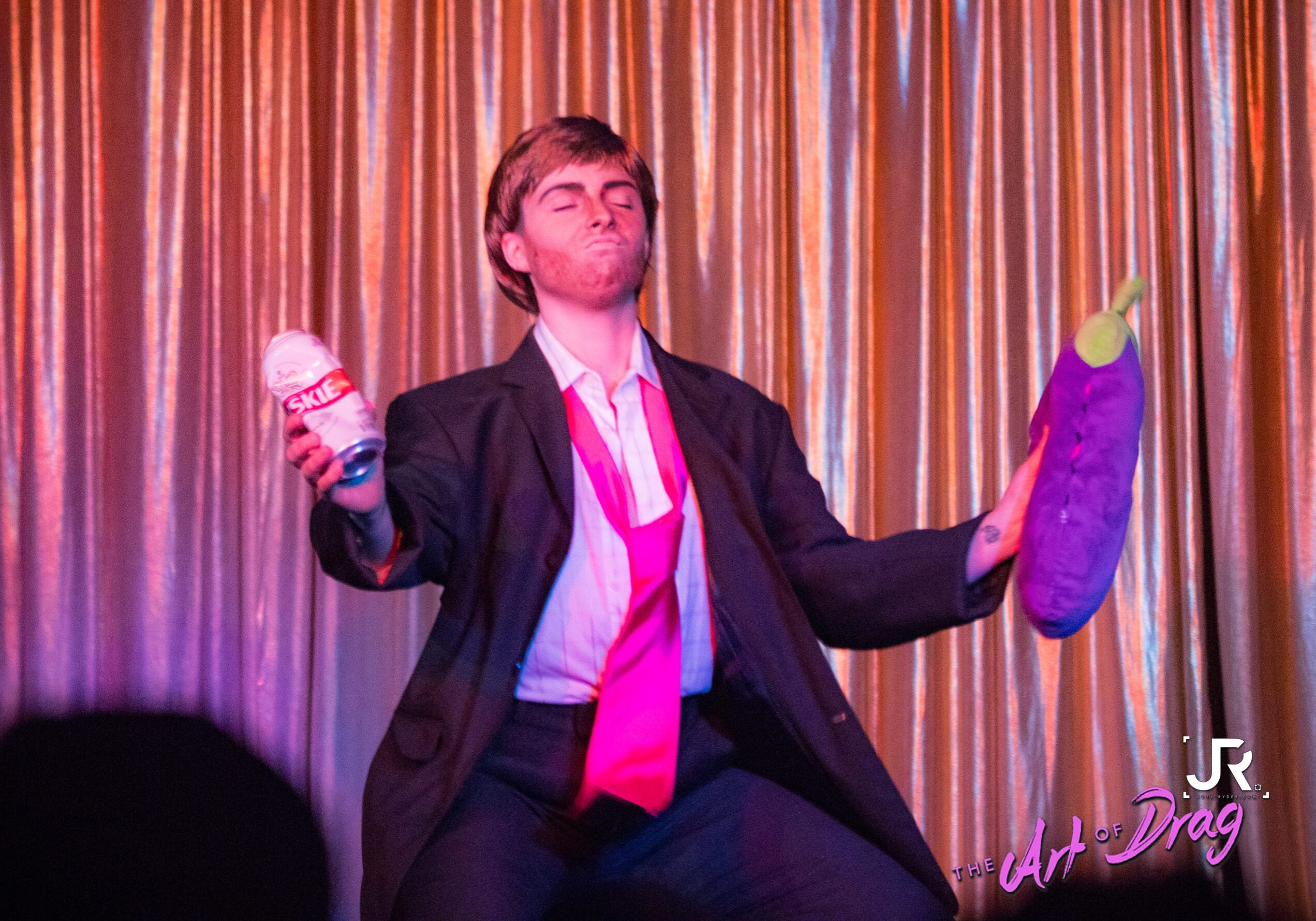
The name ‘Phil Mashitter’ is a combination of the names of two men who I used to know – and despise. One is a best friend of mine’s misogynistic, violent ex-boyfriend, and another is an arrogant posh idiot I used to share a work context with. Both of them are hideous patriarchs, chock-full of toxic masculinity. Phil Mashitter’s task is to go beyond satirising problematic men, to understand and empathise, and to give them redemption. These two seemed like good material to start with.
My performance style is aggy, arse-jiggling compassion. Drag makes me feel alive. I lip-sync and take off my clothes whilst wiggling around the stage – and people clap! I survived a decade of an eating disorder, so this is absolutely incredible for my body positivity. I’m so grateful for the community.
Today Lyndsay is an activist and participatory facilitator. They have been active in the environmental movement, against sexual and domestic violence, in occupy against privatisation of universities, and in migrant solidarity as part of the Stansted 15. They have worked with activist groups across the UK including with Collective Liberation Project, Queer Tours of London, Navigate coop, and now Quakers in Britain on supporting activists.
Follow Lyndsay's work with Gather on Instagram here

Faye Freeman
I look back over my childhood and can’t think of a light bulb moment when I knew I was Queer. I was brought up half Traveller with my dad and half in a small town in South Wales with my mum. The duality of these lifestyles was always a struggle for me having to pretend to be a normal towny when at school and then a traveller kid in the summers. It wasn’t easy and I was bullied in school for having hippy parents with trucks and vans, we were always skint, and I never had enough of the cool stuff to make me cool.
I never felt like a fitted in and strived the approval from both demographics but always knew I would end up back in the traveller posse. I ran as fast as I could out of towny-Ville, stopped straightening my curly hair, wiped the orange foundation off my face and made my way to art college in Hereford, finally felt accepted and proud of my Traveller heritage, this is where my world of parties, drugs, clubs and art became the weekly subscription and festivals became my summers but I wasn't going with my parents I was getting booked to make costumes and perform.

I moved to Bristol after college and my world opened up even more I became a full-time performer and costume maker. These younger years involved me getting dressed up, raves, squats, studio time, and drag. And that’s when these amazing women, Queers, and sex workers came into my life they were My crew and my family The Red Rash Inn was birthed from conversations around bedroom floors and nights out. The Red Rash Inn is a world we created, where there were no rules, no judgement, no genders, just love and encouragement. A Queer Utopia!
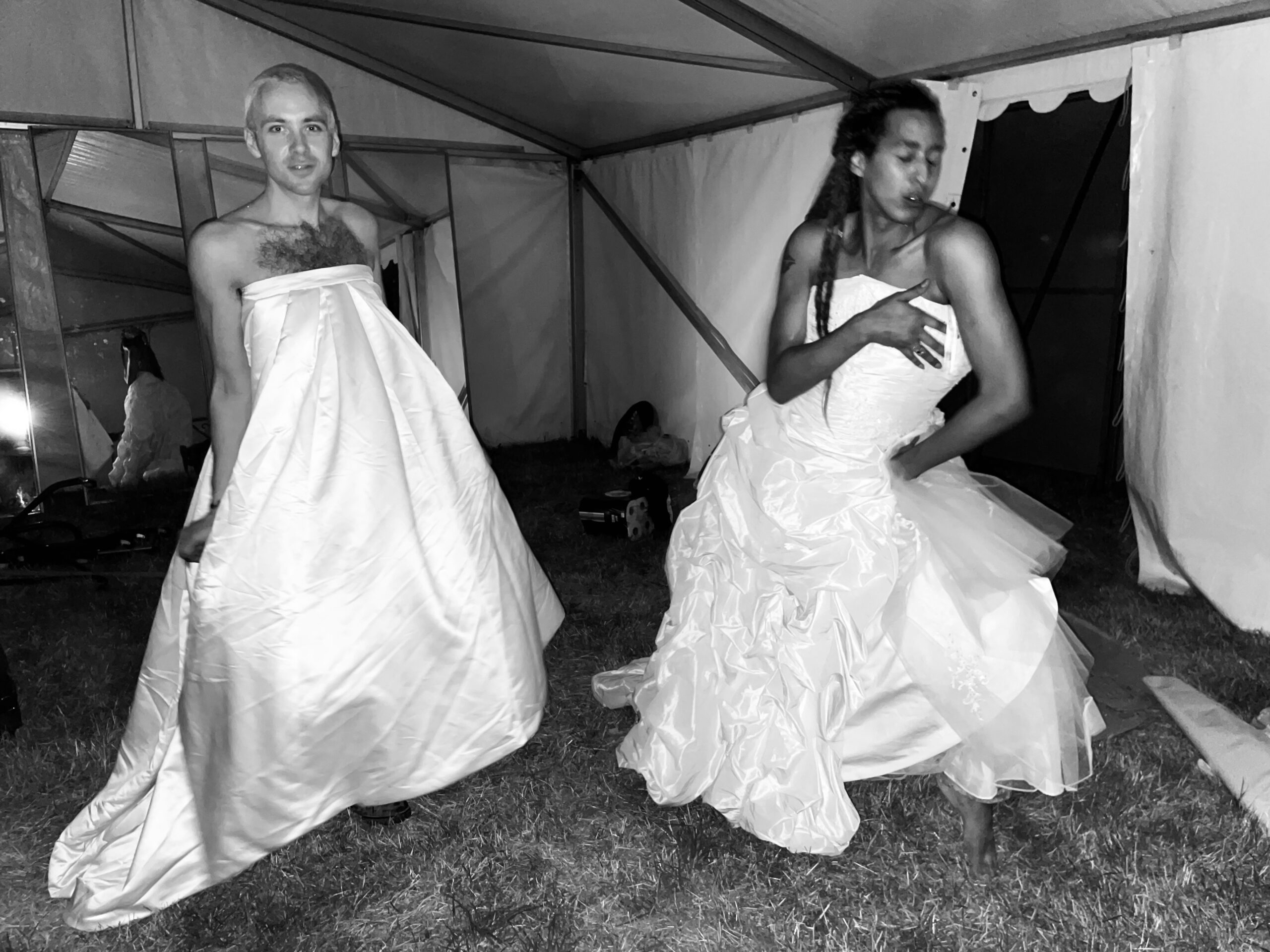
My “coming out of the closet” moment happened, it wasn’t grand it just was. I was lucky, my family and friends were joyous, and I never saw my queerness as shameful. I met Someone who was more than a fling, a person who I wanted to be with fully, who gave me more than my previous lovers. Who I made deeper connections with and who loved me for me and yes, she was a woman!
I have always loved to document my world. These selected pictures are moments of queerness in their true form. Some at home and some at festivals. Using a 35mm camera has been a journey for me: the unknown and unpredictability of film makes the shots that came out right more special.
I love to capture moments of truth and vulnerability and JOY!! What I hope to show in my photos is the magic of that person or people in space.
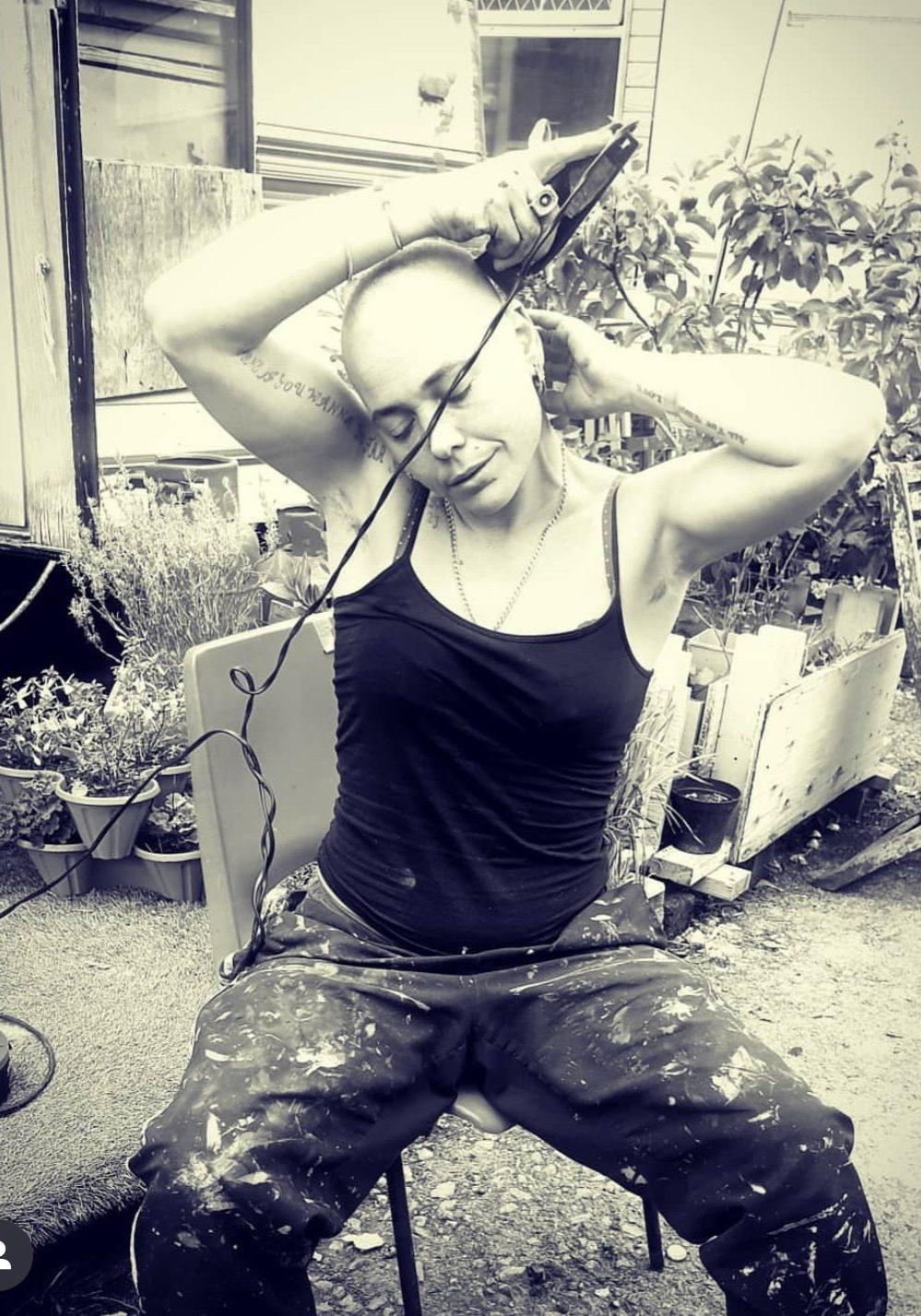
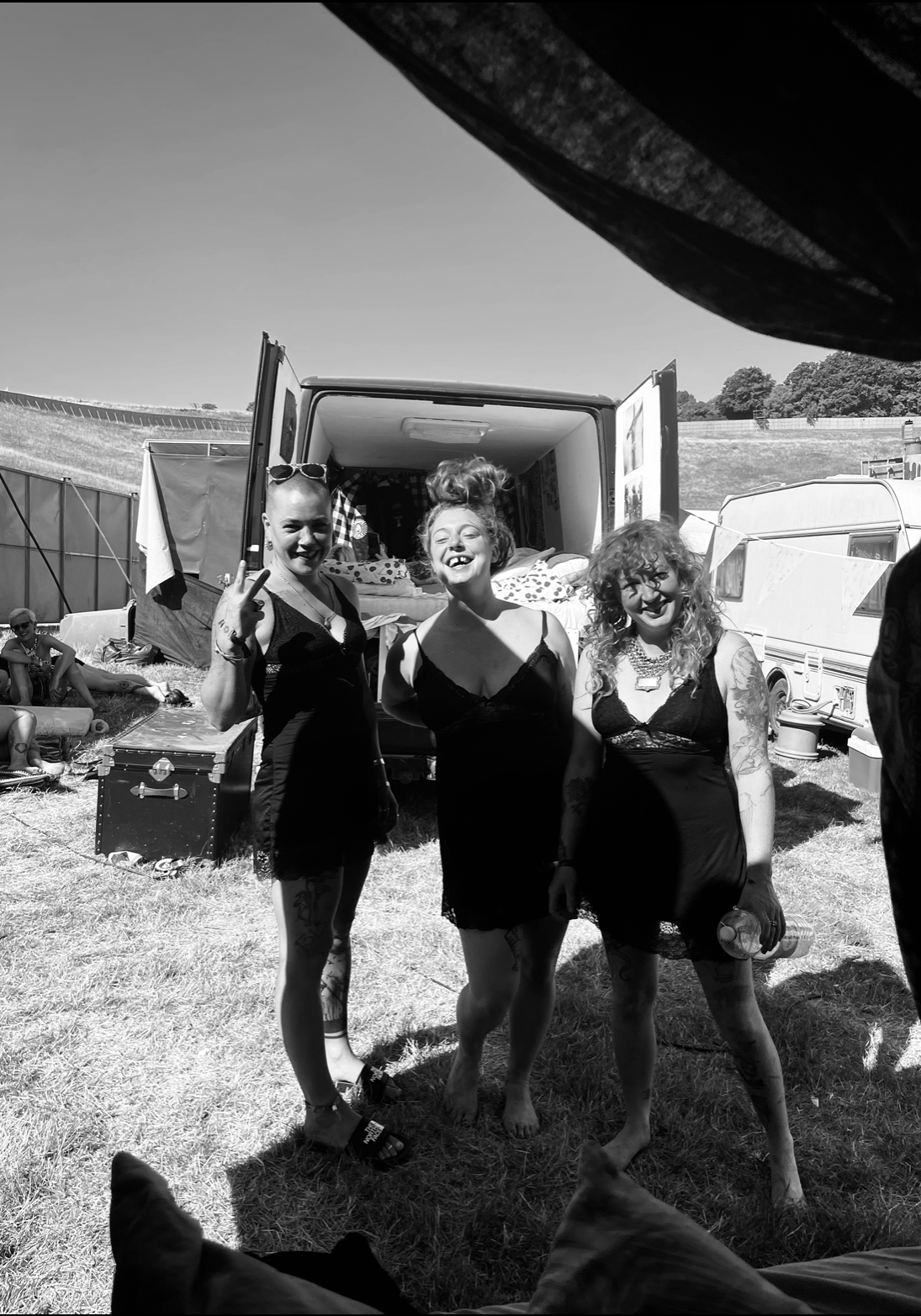
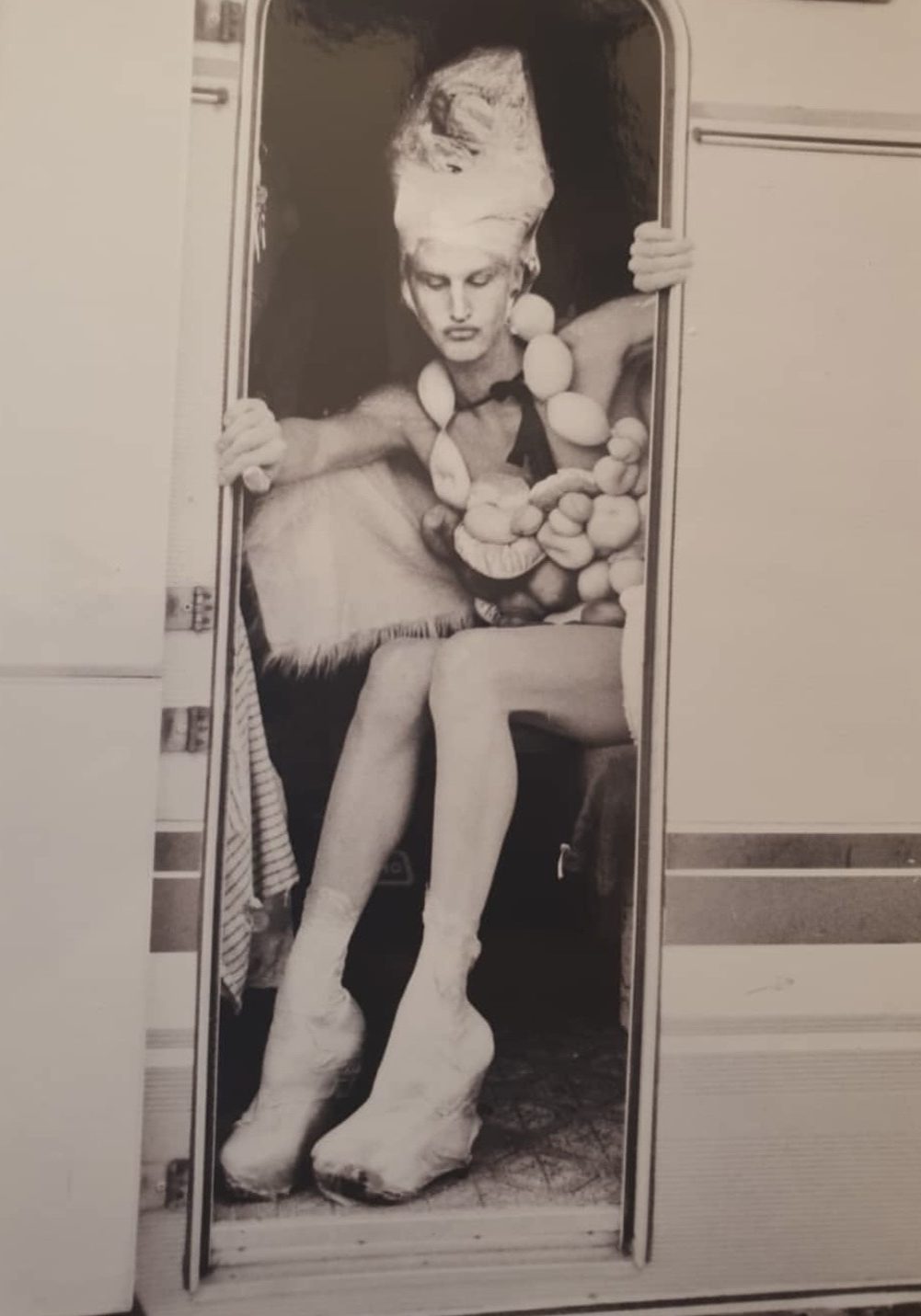
Taz Herlihy
The first and most poignant picture is of my twin sister and I at my Aunts wedding. This was a really special day for me and also pretty eye opening for my family. There we are in my paternal grandparents' home getting dressed ready for the wedding, I was getting ready with the guys and my sister was getting ready with the girls.
I felt pretty happy with what I was wearing and geared up to be the page boy, which I thought would be the focus of the wedding. Until I walk out of my room and see my sister with sunshine coloured flowers and ribbons in her hair fashioning a beautiful white dress! I looked down at my plane white outfit and boring white shoes … and cried. My actual words were ‘why does she get to look like that and I have to wear this!’
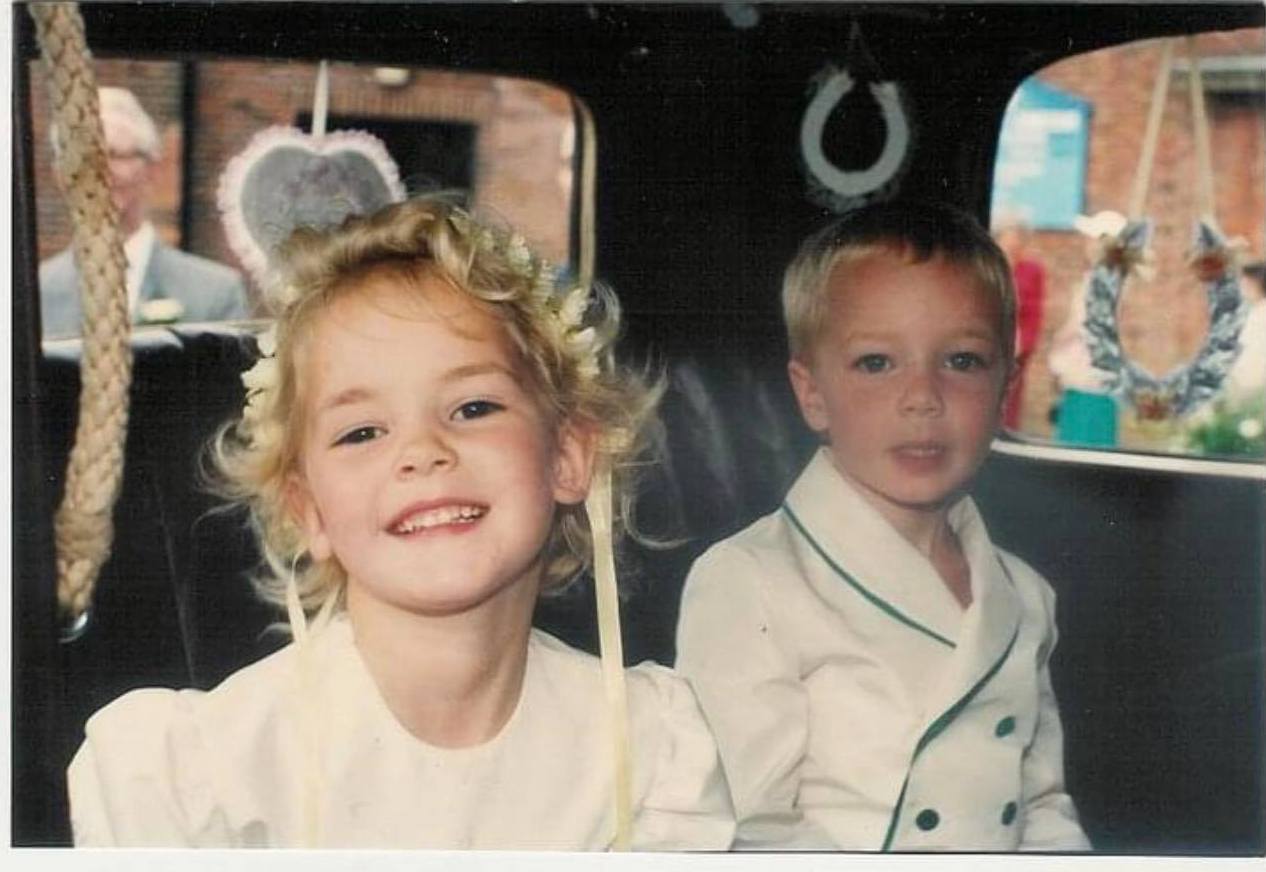
My grandmother overheard and took all my clothes off me…- and within the hour had made a beautiful green cumber-bund with matching green buttons, trimmings to match AND a matching teddy bear. This was when my family knew, I however was oblivious to my queerness and was just happy to be stunning.
The next picture of me is who I became, outwardly. I had a confusing journey in my growth around my gender and sexuality, it was never really explained to me that two men could be together and I was always under the impression that I’d have to be a woman to bag myself a man. But of course in my early teens I got gay as hell and I settled on the realisation that I could be a man and be with men.
Identity wasn’t anything I struggled with when I was young because I’d deluded myself into thinking I could genuinely become anything, wether that be a mermaid or a witch, a millionaire or a famous pop star I knew that i had all the time in the world to become who it was I wanted to be. Never really understanding how hard I’d be short strawed and the expectation of me to become anything at all was pretty much zero.
I was born into a traveller family, abused within the foster care system and at 15 I was living alone in a hostel and expected to adult and take care of myself.
It was at this age I really leaned into my sexuality as a means to support myself, creating relationships within the gay community and outreach programmes I was able to navigate myself toward a pretty amazing life… considering 😉
I’m very happy with my gender and sexuality. I’m really grateful to have experienced my journey in my way. I feel like I’ve grown through many versions of who I could have been, which collaboratively has created who I’ve decided I want to be, right now. And the circus, being an acrobat has solidified every extroverted dream and has very much tamed the Leo within. The circus is a place where you can embrace all parts of your gender and sexuality and people have to sit and watch (or leave). It’s a place of strength, power, sparkles and make up. It’s the tool I use that helps me navigate myself through life and gives me my only sense of direction and belonging. The spirit of the circus has been family and I wouldn’t be where I am having not found it.
Today Taz is a world-renowned circus aerial acrobat, artist, theatre performer and workshop facilitator specialising in aerial performances.
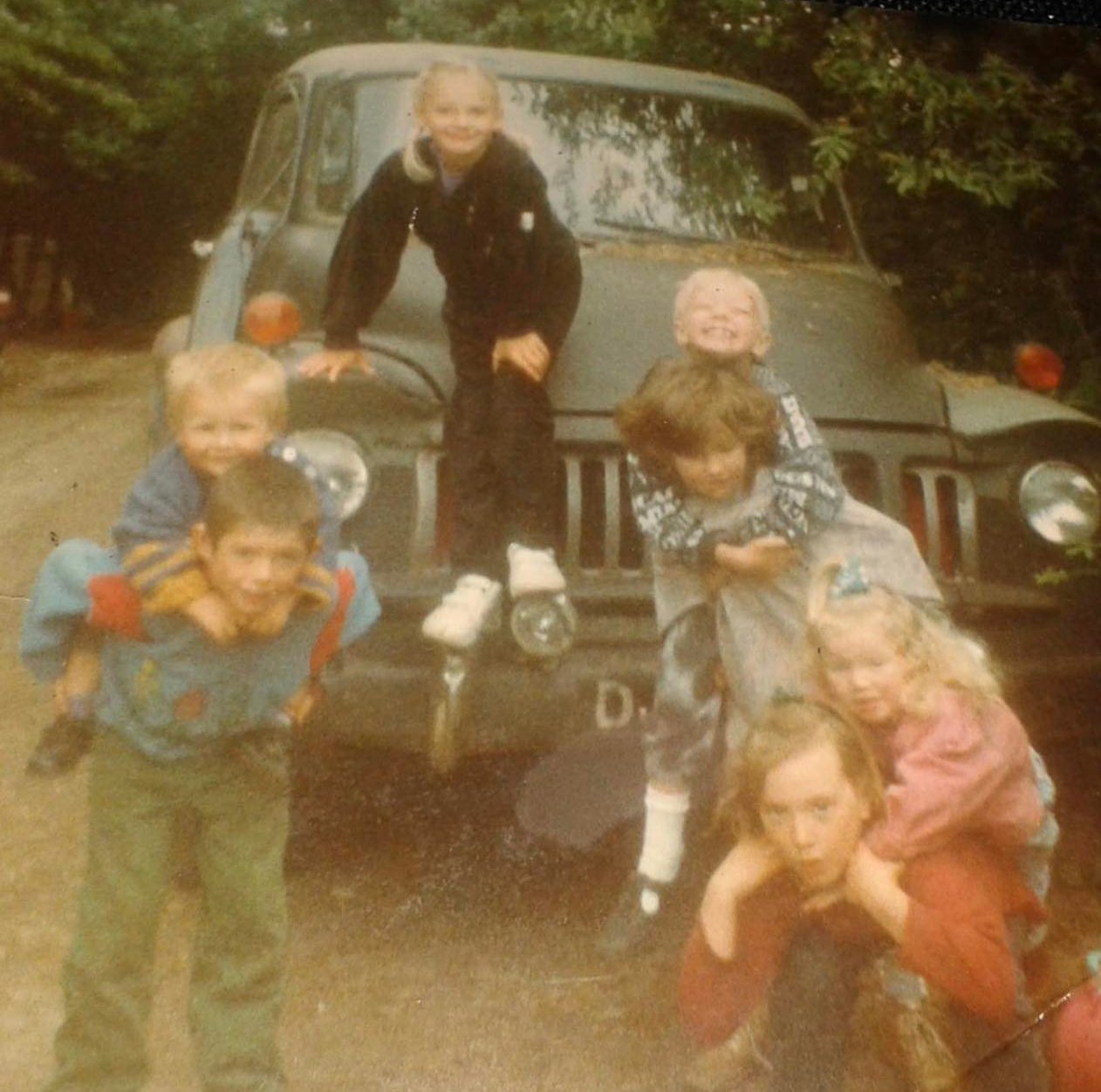
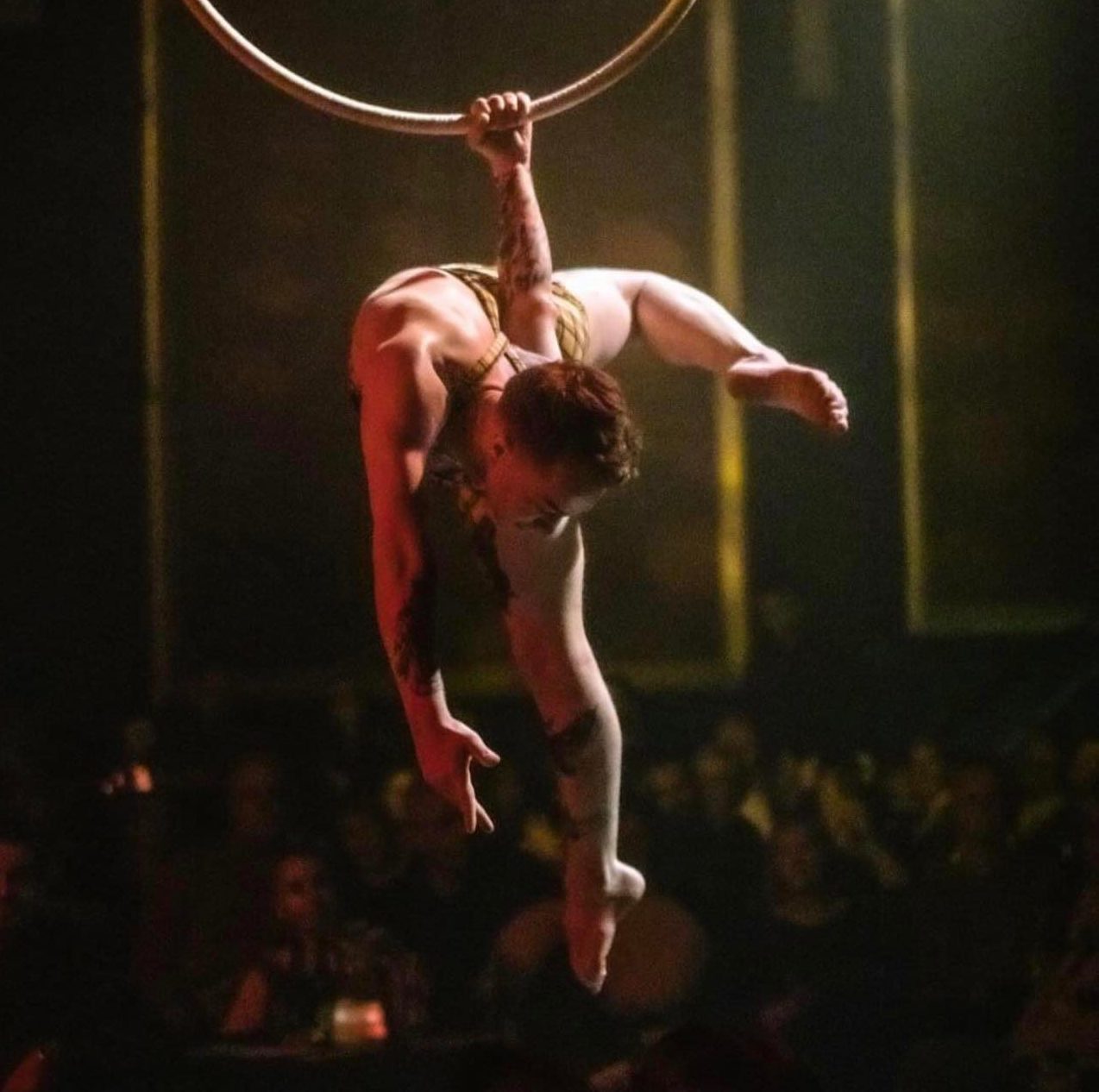
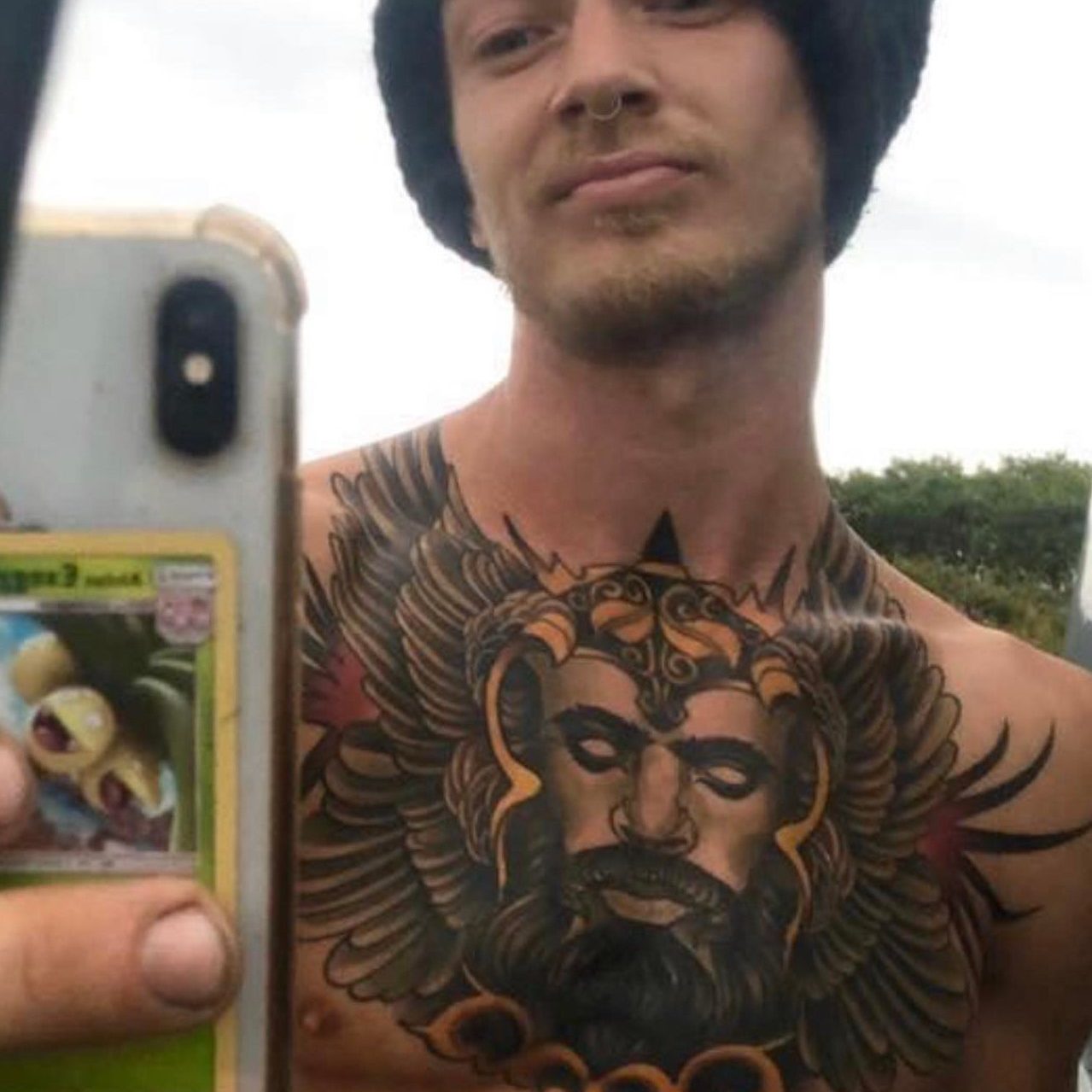
The Red Rash
Rosa Truelove & Faye Freeman

We at ‘The Red Rash’ are a collective of artists, performers and sheek freaks. We began in 2013 in Bristol as a female led gender bending performance space at Boomtown Fair Festival. The venue has become a force to be reckoned with, a safe space for LGBTQIA folx where they can come and watch a cabaret show, Dance in the itchy Bitch disco or hang with our crew.
We support and encourage sexual freedom, we hold space for people. We are an immersive creative performance troupe. We have always wanted a space for people to feel safe, safe in their own skin and safe in our environment. No judgement, no rules, no shame. We explore the ideas around gender and sexual identity by using anything as a point of inspiration for characters or themes for our shows, for example we created a “best in show” crufts theme in 2022, and post apocalyptic biker pigs in 2015 we like to challenge and show the audience that identity isn’t linear that sexuality isn’t always what we are told it can be. We break down barriers with humour and play.
The Red Rash started as a collective of 6 people but now a crew of 50 when there is space for us all. We have created a space where sex workers, queers, trans and neurodiverse folx From our community can express themselves freely with no shame and a whole bucket of love. We put on nights in Bristol and have worked all over Europe at festivals and parties.
Andrew Lumdsen
‘Here I am with musician Peter Reed, my boyfriend during Gay Liberation Front in the early 70s. The Parthenon behind us. We were lucky compared to today: we had the right to squat, and rents were tiny, but the wigs available for drag were nothing like as good as they are today!’
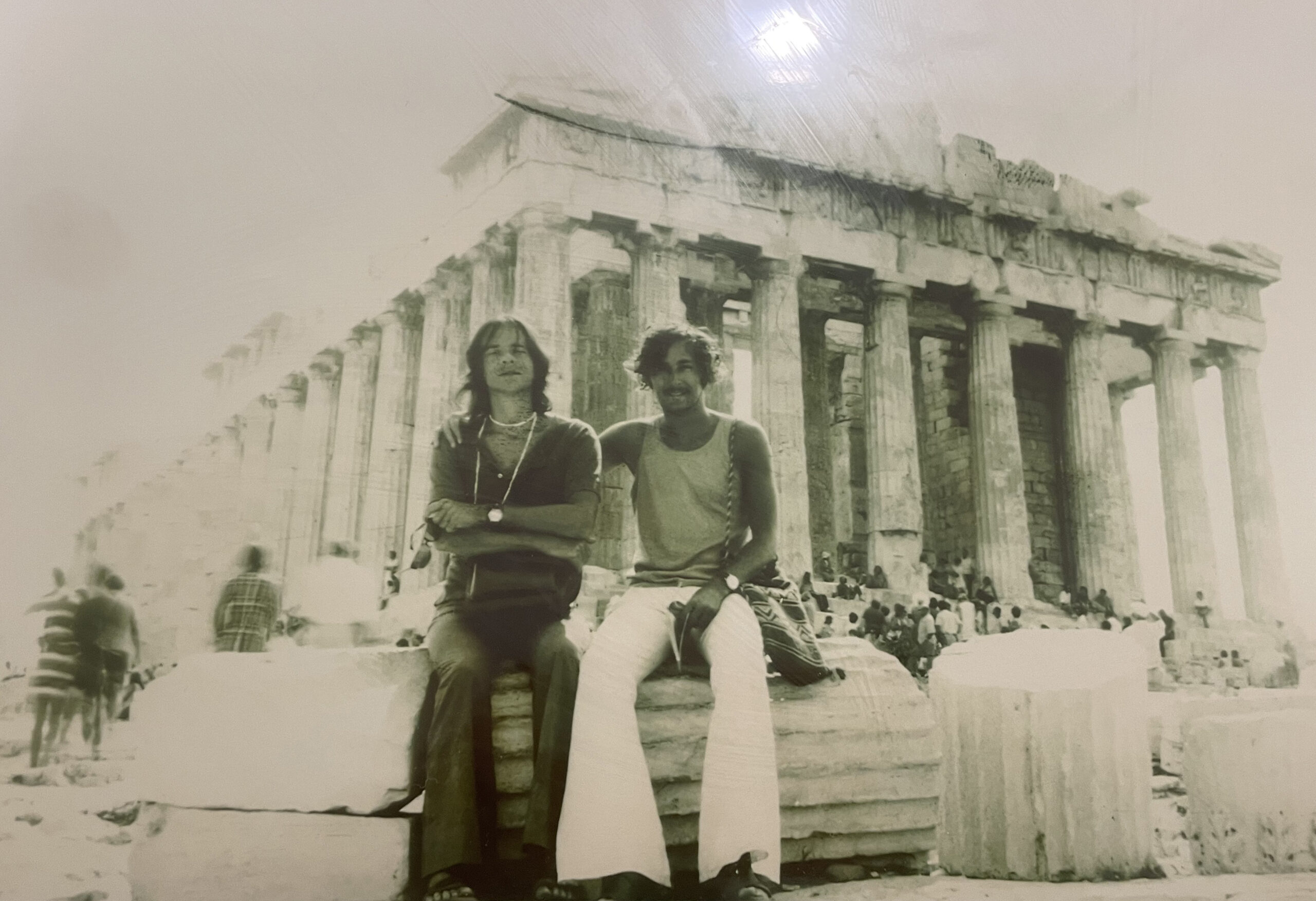
Hailing from Surrey, Andrew Lumsden joined Gay Liberation Front London in 1970. This was the revolutionary movement whose young people invented the first ‘Pride Week’ in 1972. “It wasn’t about changing the law, it was about changing ourselves, just like you’re all changing yourselves today.” Andrew invented Gay News in 1971, first published in 1972. Lesbians, gay men, trans people and non-binary people were on staff or contributors for eleven years before money troubles closed it. From 1977-1983 it was the biggest-selling newspaper for homosexuals on the planet. Read more about Andrew here ‘A pioneering 1960’s gay rights activist on the time he staged a sit-in with a bunch of drag queens.’
Today, Andrew specialises in Soho and Bloomsbury history tours with Queer Tours of London - A Mince through Time.
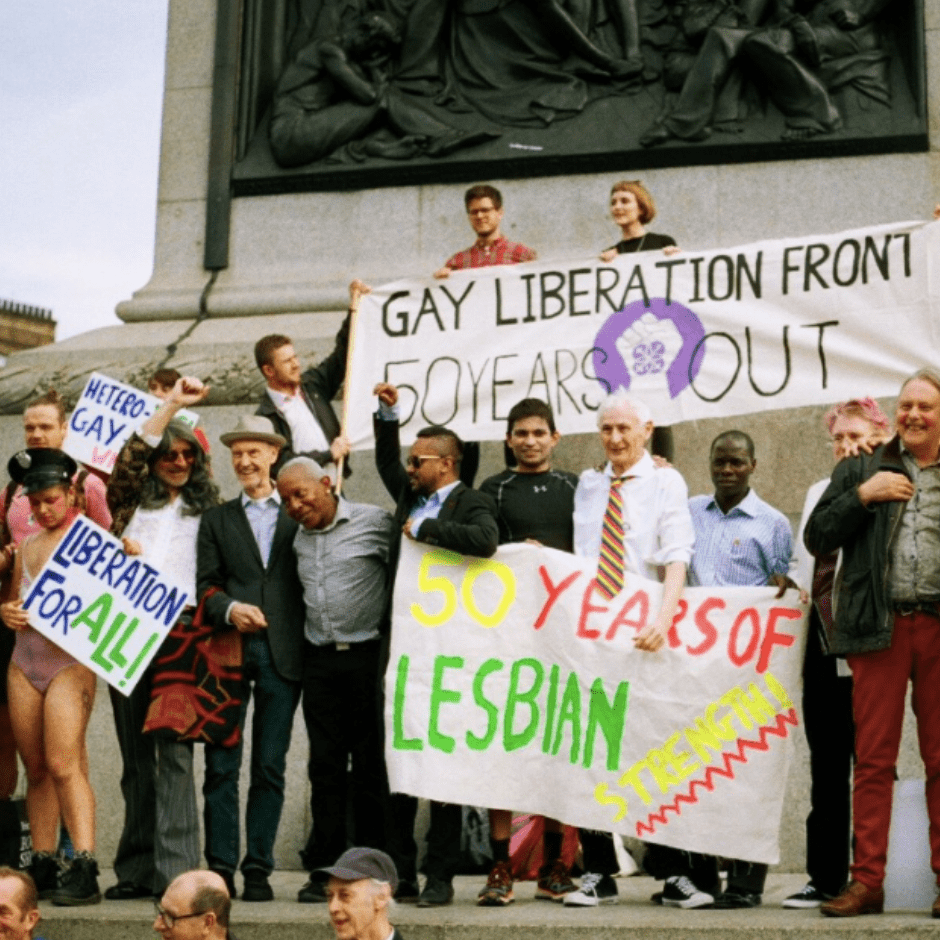
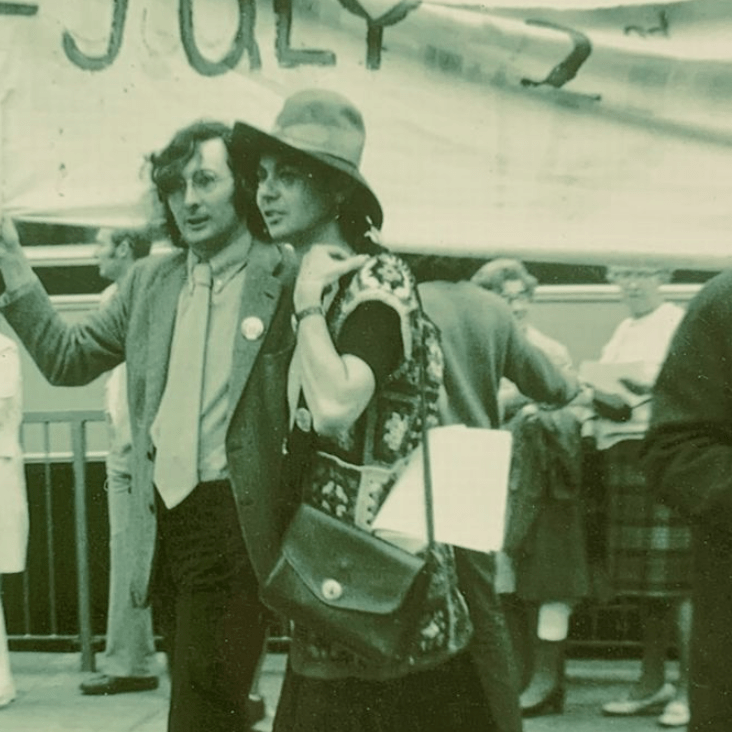
Mica Coca
Mica Coca grew up in Manchester and music and justice has always run through her veins. Mica has gone on to become a powerhouse artist, activist and DJ - celebrated throughout the UK. Mica was a founding member of resident DJ of ‘ResisDance’ – A woman & non binary DJ collective challenging gender norms in the music scene to create safe spaces on the dance floor.’ Taking hold of the tech and decks, Resis’dance are a women and non-binary events collective challenging gender norms in the music scene and creating safe spaces on the dance-floor. They will be hosting an introductory workshop to DJing, covering everything you need to start to play or to improve. Resis’dance aim to support women to build confidence in their ability to produce music and be part of a male-dominated music industry.
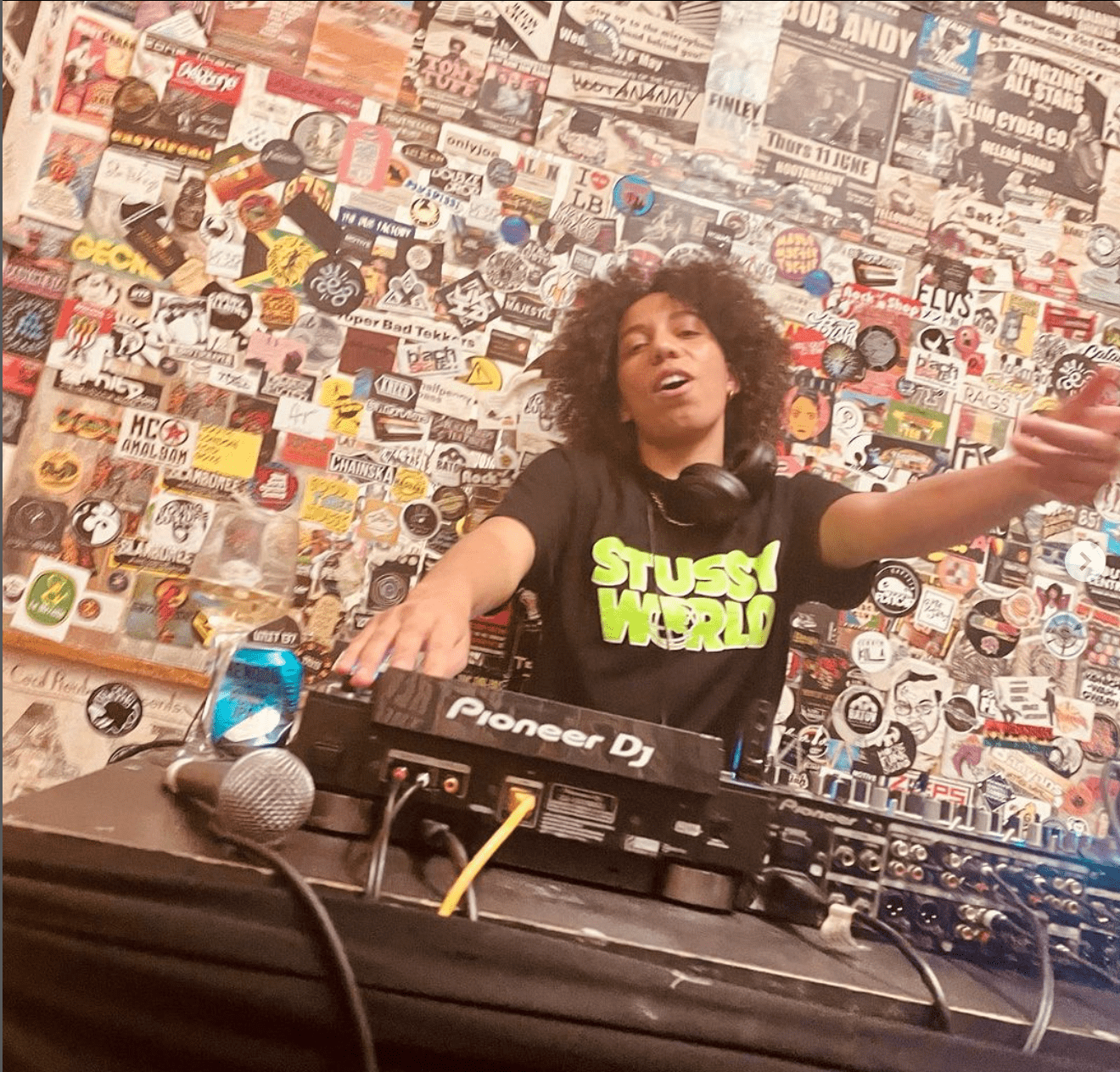
In 2018 Mica Coca and GIN founded ‘Nite Dykez’ out of a desire to create spaces which emphasise a love and appreciation for electronic music. Nite Dykez have always prioritised black women and non-binary people on their line ups, but believe in the power of music to bring people together so welcome everyone into their space. Nite Dykez believes that there needed to be space within the LGBTQIA+ community which practised both safety and the well known practice of peace, love, unity and respect. Mica Coca and GIN boast a range of electronic and house with sounds from the classics, to chicago, detroit, ballroom, bass, soulful, and club fillers. Combined with over 10 years of experience DJing and organising events within the LGBTQ+ community, Nite Dykez is definitely a party to keep your eye on.
Mica is also a long-time activist with Sisters Uncut - a feminist direct action group that is opposed to cuts to UK government services for domestic violence survivors. The group identify as revolutionary feminists and police and prison abolitionists, and is open to women (including trans and intersex women), non-binary, agender and gender variant people.
Siobhan Fahey

I changed my hair colour frequently during 16 and 17, but these were my straight years. It all changed when I was 18, I ran away to London, and finally found dykes and drugs. But that’s another story for another day.
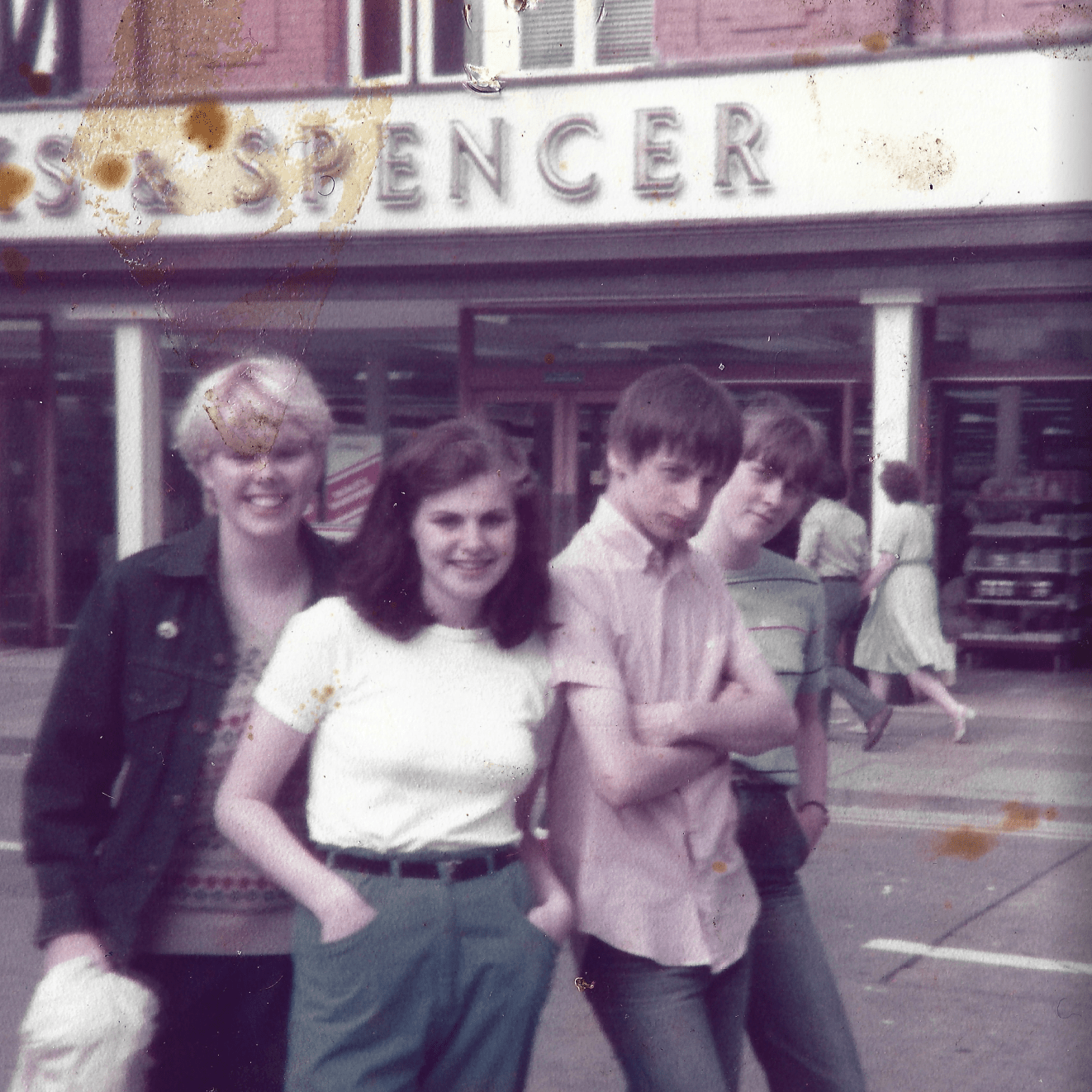

The bottom photo is me with Emily Witham and her art work Descendants of Rebel Dykes at the exhibition I produced called The Rebel Art and Archive Show in summer 2021.
Today, Siobhan is a trailblazing award-winning independent film producer that includes celebrated ‘Rebel Dykes’ a rabble-rousing documentary set in 1980s post-punk London. The unheard story of a community of dykes who met doing art, music, politics and sex, and how they went on to change their world. Siobhan’s film ‘My Loneliness is Killing Me’ won a BAFTA Scotland. Siobhan also coordinates the ‘Rebel Queer Film Club’, find her there!
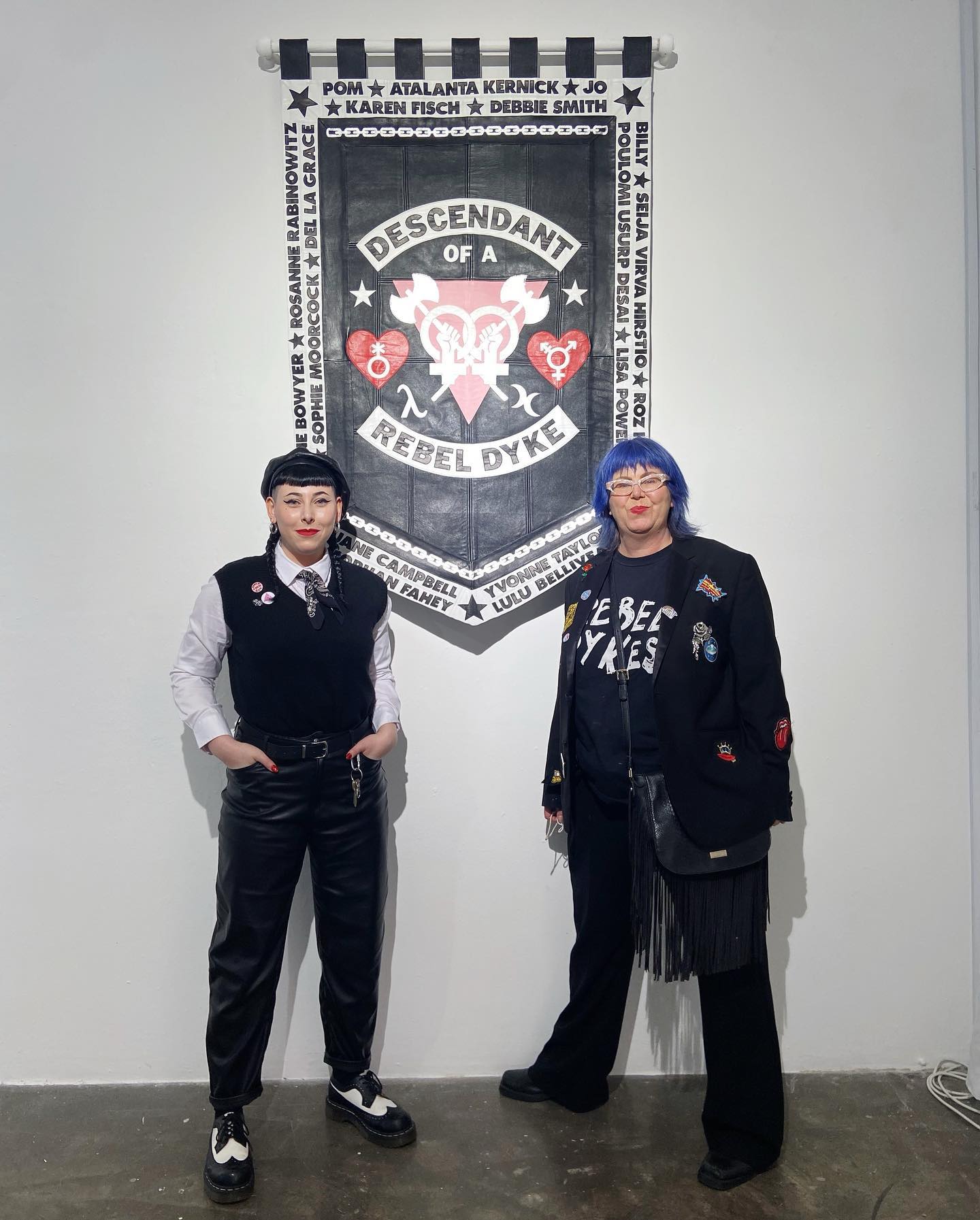
Mazharul Islam
Mazharul Islam (Maz) is a LGBTQIA+ activist from Bangladesh who fled his country on the 29th April 2016, after the murder of his two Bangladeshi LGBTQIA+ activist friends by religious extremists in Dhaka on 25 April 2016. He was one of the pioneer members and management board member of the online LGBTQIA+ group: ‘Boys of Bangladesh’ which is considered to be one of the first online platforms for the Bangladeshi LGBTQIA+ community. Maz moved to London shortly after in 2016 with the support of his past employer ACCA. In his spare time, he is a tour guide of ‘Queer Tours of London,’ an active member of ‘ACT UP London’ and a volunteer member of the ‘Gay Liberation Front of London and the Peter Tatchell Foundation. He has been actively working as a founding member of a Bangladeshi non-profit organisation entitled ‘Family and Environment Development Services (FEDS)’ since 2007.

‘My friends were brutally murdered. Bangladesh is one of the commonwealth countries and Bangladesh still follows the British colonial laws. The penal code 377 states ‘Unnatural offences.’ Whoever voluntarily has carnal intercourse against the order of nature with any man, woman or animal shall be punished with imprisonment and liable to a fine. LGBTQIA+ activists around the world should come forward to work together and make a strategic plan to abolish the laws against homosexuality. We should change the world before we die so that future generations can live in a world where homophobia doesn’t exist so that we don’t need to leave our own country, family friends and live in another country with refugee status.'
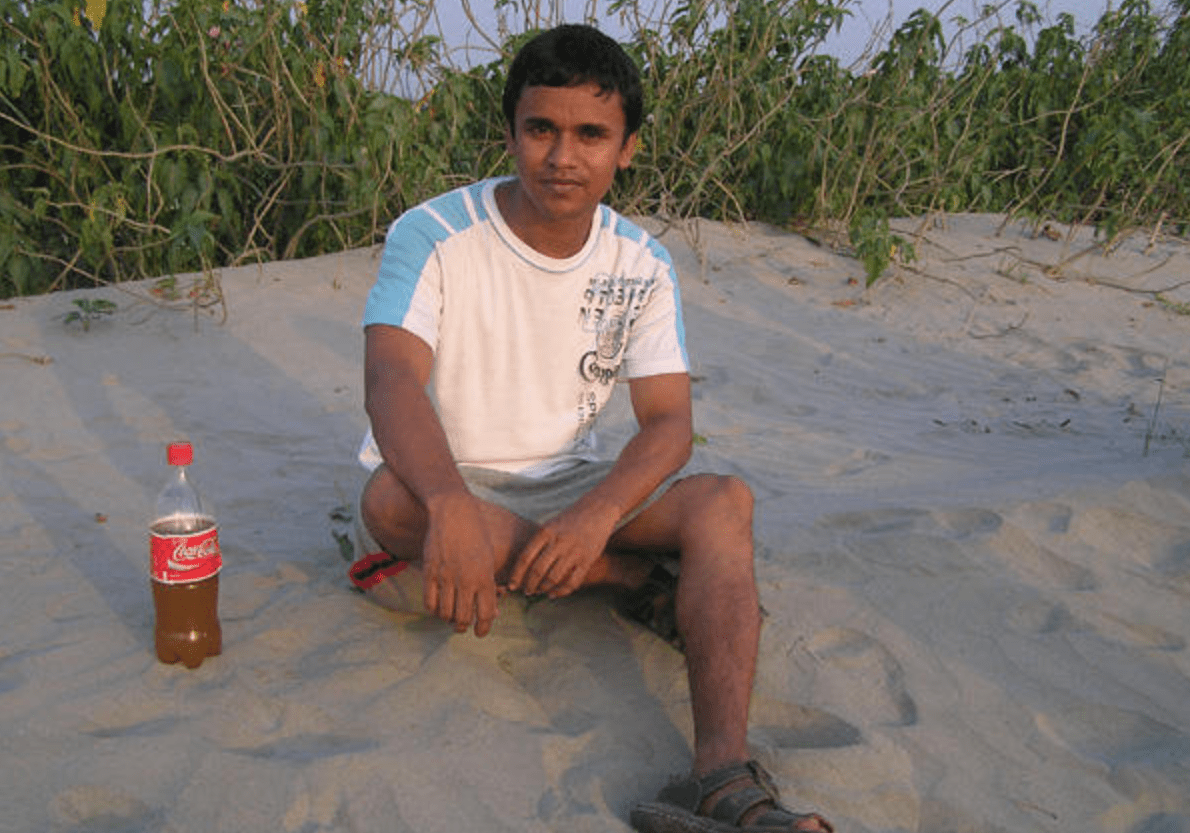
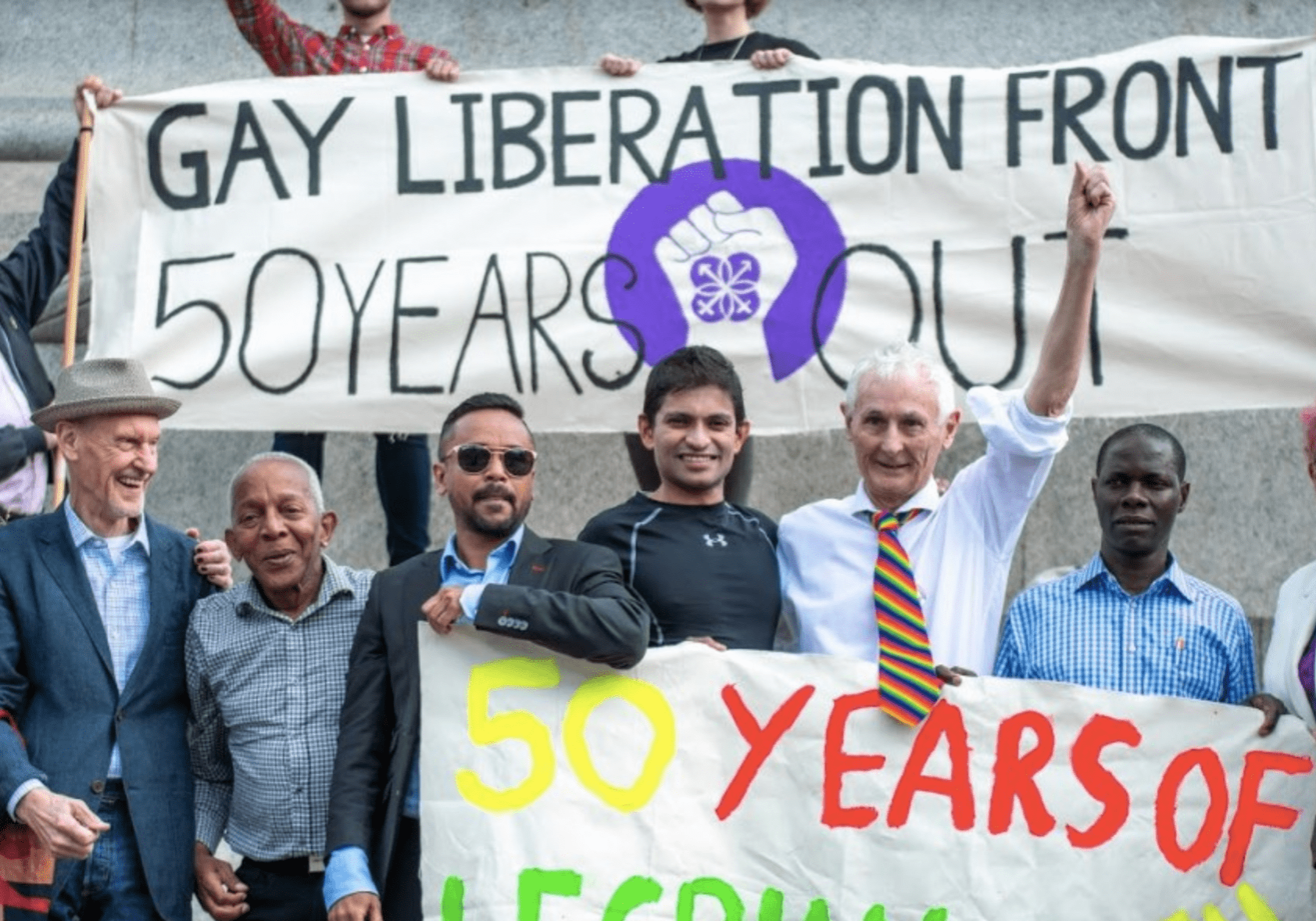
Maz was proud to be one of the winners of the ‘Attitude Pride Awards’ in 2018, for organising and leading a protest in London in front of the Bangladesh High Commissioner, seeking justice for his two activist friends who were brutally murdered back in Bangladesh. Maz is a founding member of the online group ‘The Rainbow Tree’ A virtual home for the British Bangladeshi, Bangladesh and Bangladeshi queers around the world. He is one of the trustees of the Charity Organisation; The African Rainbow Family and a Patron of another Charity organisation;ReportOut which is a global human rights organisation for sexual and gender minorities.
He is currently residing in Newcastle (a beautiful queer friendly, calm, peaceful and welcoming city) since November 2021 and working as a care support worker in the charity organisation; the Royal Mencap Society. He has to leave home (his brother’s home) for LGBTQQIAPP+ activist but nothing could have stopped him from being who he was and now he is a very strong, loud, and proud Bangladeshi LGBTQIA+ activist who gives hope and support to thousands LGBTQIA+ people from Bangladesh and around the world.
Jack Wakely
I remember a conversation with my parents as an adult where they described me as an 'eccentric child', which I think was a very delicate way of saying I was pretty strange from the word go. I was very aware throughout my childhood that I was 'different' to my peers - whether because of my experiences, my mental health, or a quintessential otherness I only found the words 'queer' and 'trans' for as I got older. Given my entire school career took place under Section 28, it's really no wonder it took me so long to find those particular words.
The majority of my childhood was spent in Plymouth and, at its very best, I remember it being long nights playing games in the street outside my house, holidays in Cornwall, eating pasties on the Barbican, and trips to the fairground when it came to town. The sound of seagulls still makes me feel at home, no matter where I am.
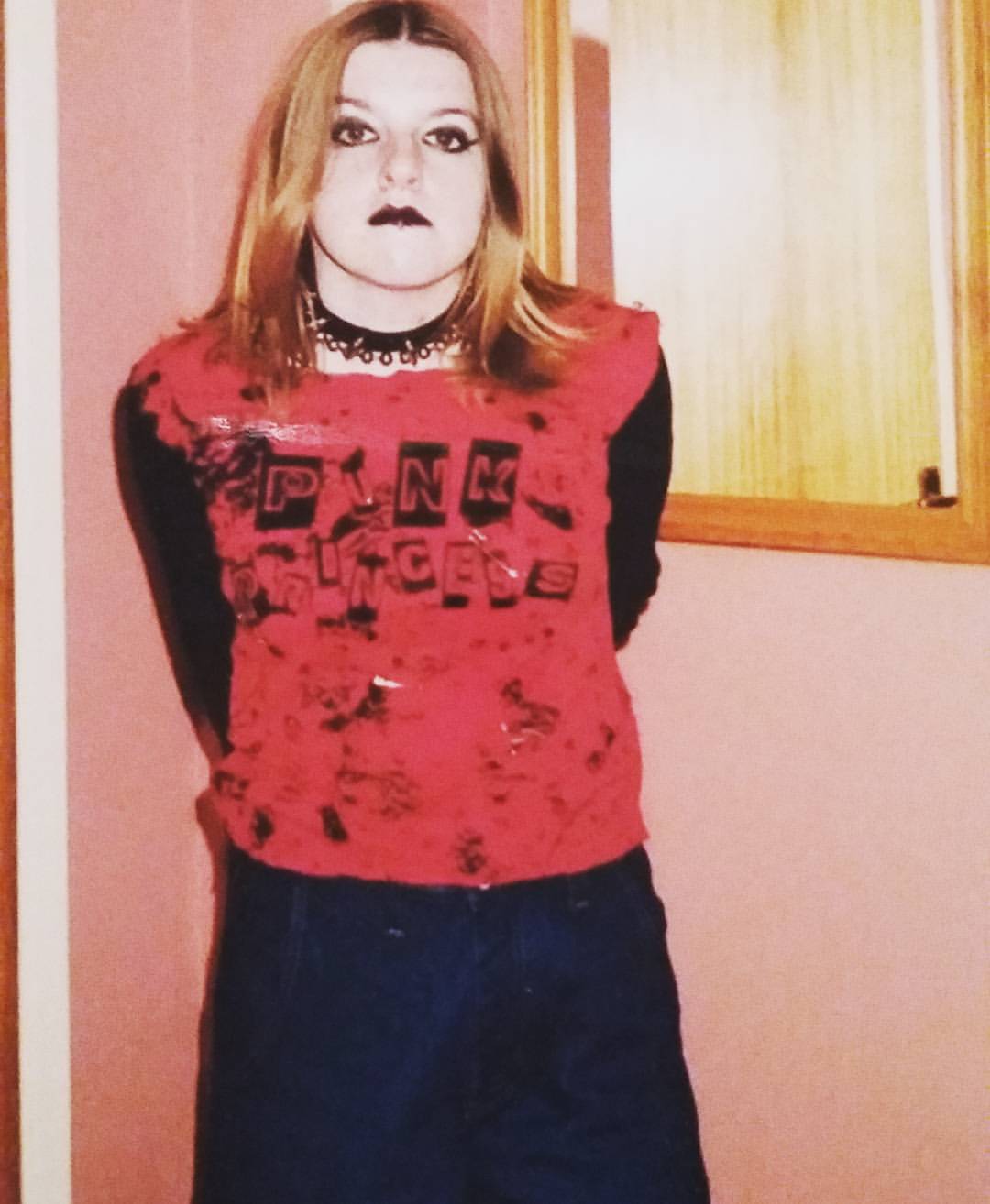
While we only moved twice while I was growing up, I remember it feeling pretty destabilising - especially the move from Devon to Somerset when I was 13. I struggled to connect with my peers in Weston, feeling that difference even more acutely in my teens, and ended up spending a lot of time glued to the family PC, building friendships with fellow outsiders in the rest of the UK, as well as the US, Canada and Australia. By the time I was in sixth form, I'd found and made friends with the town's goths, punks and metallers and would skip class to go and hang out in a skate shop with older friends, as well as being found dancing like an idiot in Weston's only alt nightclub, Hobbits, most weekends.
These days, I'm living in London (somehow made it to 15 years this March!) and working in theatre, telling my own stories and helping to facilitate others to tell theirs. Currently, I'm touring the UK with my theatre company, Silent Faces, with a show where I get to stand on stage and say, quite simply and without fanfare, that I'm non-binary. Through this, I've had the pleasure and privilege of meeting so many other non-binary trans folks in towns and cities all over, and the beautiful realisation I've become the person I needed to see when I was a teenager.
I'm spectacularly out in absolutely anything and everything I do, having been living as my truest self for about 6 years now. In many ways, I'm still the weird little kid I always was, but now I'm lucky enough to have found those people whose otherness fits with mine. I'm empowered by queer history and everyone who's ever stood up and shouted back in the face of injustice and inequity.
You can follow Jack on Instagram here
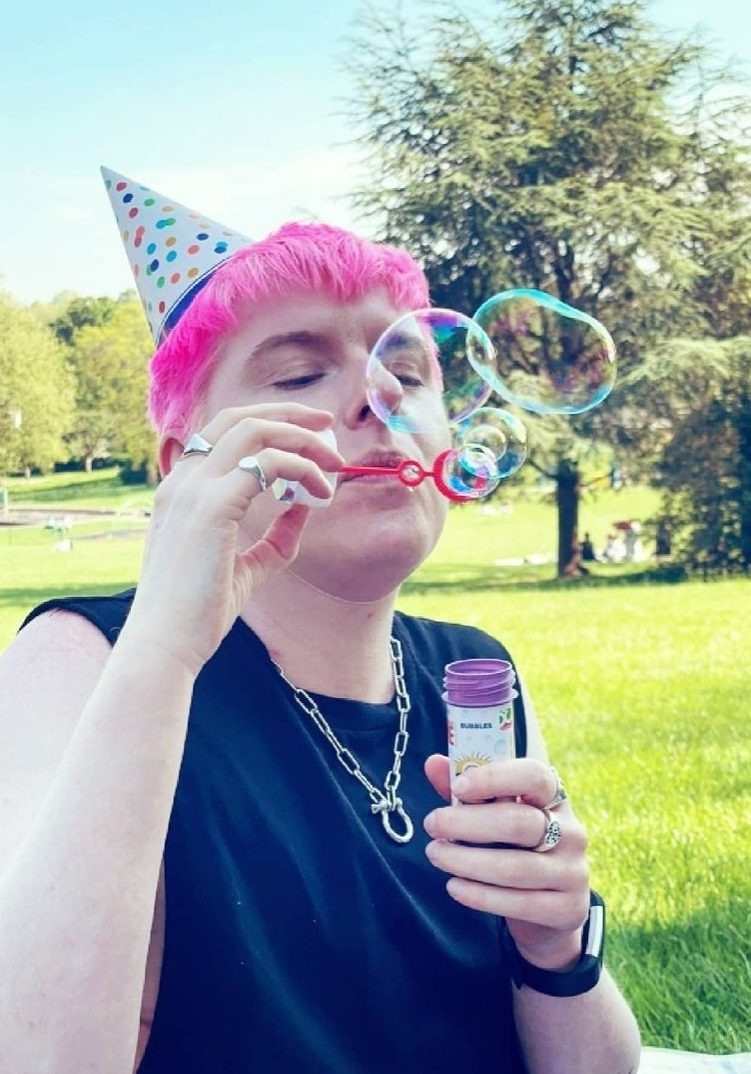
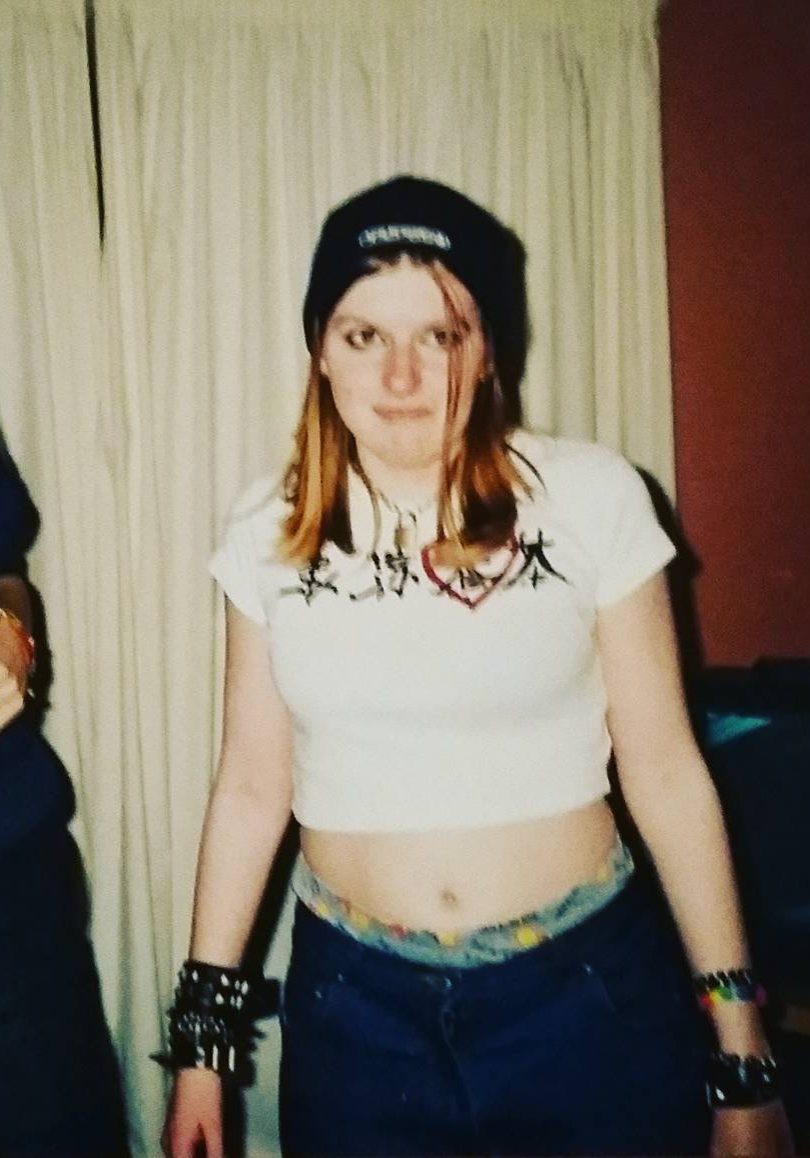
Jordan Thomas
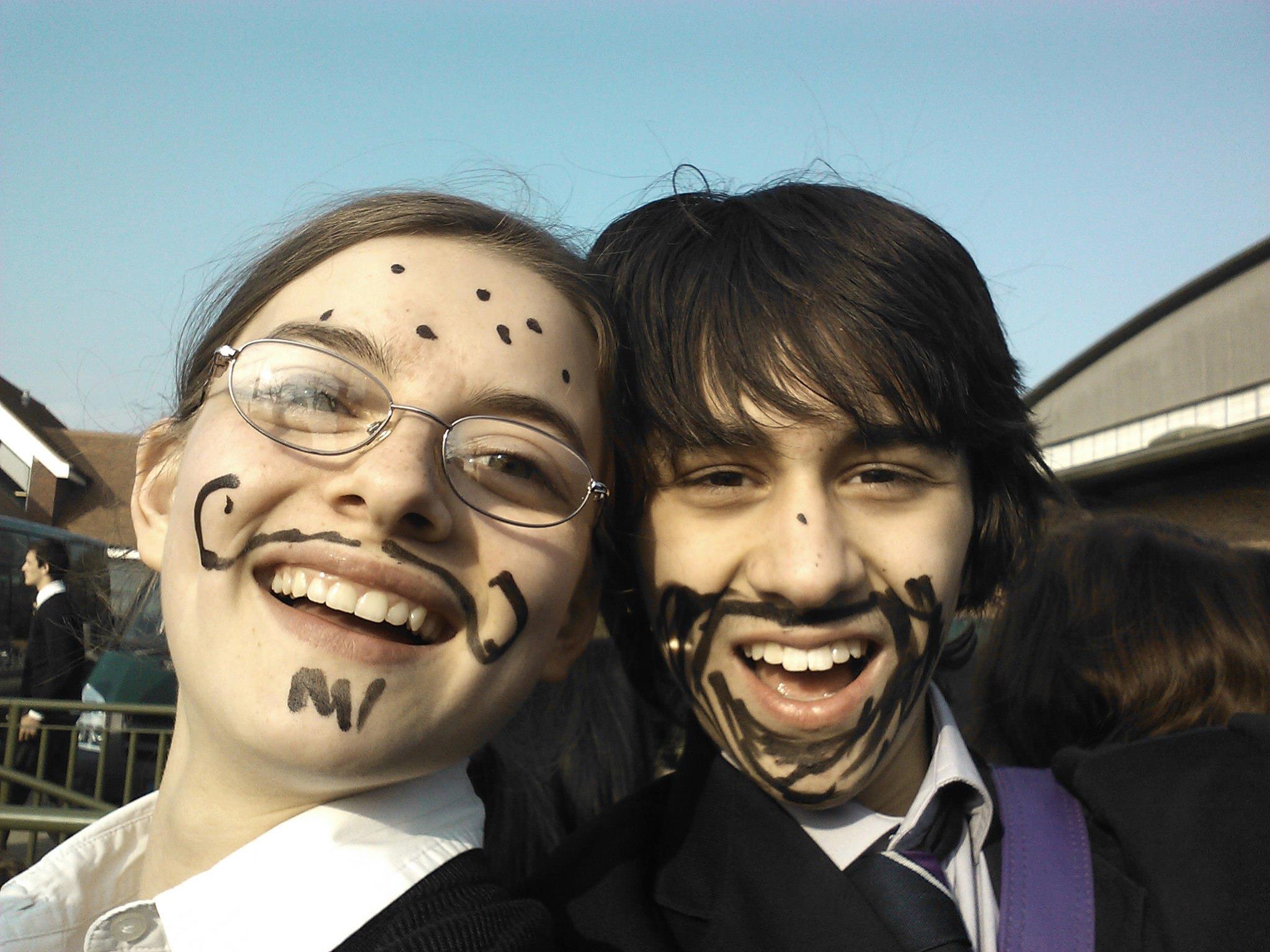
The seaside is banal for a local, and even if I’ve been lucky in life I inherited my working class parents’ boredom. Eastbourne felt like a cage for everyone, and especially being queer and young, you had to find joy in the oppressive dull. That feeling will never leave me, whenever I go back I feel 16 again. I like these photos because they capture the fever dream reality of how it was.
People think Sussex is a queer utopia but Brighton only functions by absorbing tolerant and talented people from nearby. The communities they leave behind are cold in their absence. You can’t move away when you’re a child. All we spoke about at school was escaping town and even with therapy, I struggle to avoid running away as a response to trauma.
Looking through childhood photos is always shocking to me, because the signs of queerness seem so apparent in retrospect. Despite feeling so repressed as a child and having so much anxiety every second about “looking gay”, I’m sat there looking like a drag king with my irrepressible joy always finding a way to express itself. I used to separate the old me from who I am now but photos like this really help me piece together my journey - the true origins of my queer identity. It was not queerness I found, but the shackles of society I lost.
Eastbourne never accepted me, especially being mixed race, regardless of how its forests and sea will always be home. Coincidentally most of my childhood friends came out in the years after, we’d only found our freedom once we’d got away. I’m both devastated and proud at being from this town, queer and from this town.
I escaped home to be a UX designer in London, which gives me survivor’s guilt. To empower myself, I protest, I make art and I refuse to hide. I was lucky to have Stonewall interview me about being openly non-binary at work, which is one of my proudest moments. I became the voice I needed to hear as a kid.
You can follow Jordan on Instagram here
Nell Andrew
At 16 I am on my first queer date in our local Indian restaurant in 1998. I was so excited, despite half our friends coming to, to make it less obvious we were on a date., The night ended up with me giving a witness statement to the police of a racist attack. We were snogging in the loos and I stood on the toilet to see what all the noise was outside the restaurant we were in!
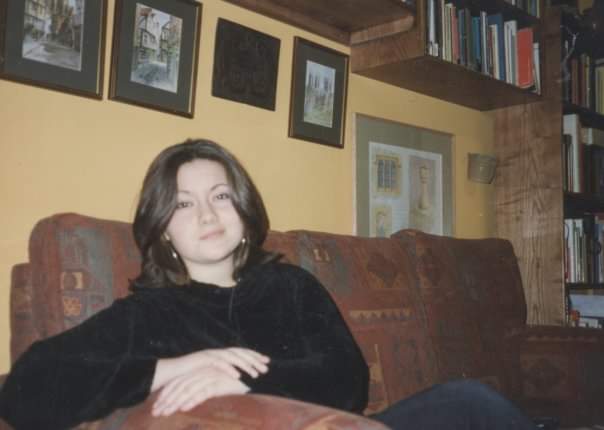
Growing up as a queer teenage in a place the ‘British National Party’ (BNP) referred to as the 'Motherlands', didn't always feel the safest or most inclusive, but I think we learnt to create our own spaces, to take what we had and create queer magic, theatrics, campery and resistance. I was part of a community theatre group called Barefoot Doctors and I think they gave us the tools and confidence to think anything was possible. I think my teenage experiences shaped my queer adulthood by giving me a strong sense of what can be done with love, community, a little glitter and courage. And not to make assumptions about people. Whilst there was a lot of homophobia and transphobia in Stoke, there was also a lot of acceptance, care and a particular sense of humour, dryness and wit, that still means a lot to me.
This second picture is my 19th birthday in Stoke on Trent in 2001, with my friend Julian Smith, in a pub called the Museum. It wasn't a gay bar, but somewhere they always left us alone as a group of queer teens. There was only one gay club at the time which was in Hanley, so it was often indie/ alternative spaces that were the only other places it was mostly safe to be openly queer in. So I think we ended up at The Stage after this. 21 years later, every Xmas, I still meet Julian and other queer friends from that time in the Museum in Newcastle upon Lyme.
Today Nell Andrew is an Equity and Inclusion leader, community campaigner, pansexual and came out as Non-binary at 39!
Andrew Woodyatt
I grew up in the Derbyshire hills in the 70s and Derby and Manchester in the 80s, clubbing, cruising and exploring queer culture. Growing up in the Derbyshire hills in the late 70's and early 80's was basically about survival and making the most of a hopeless situation, where you are known by everyone (and probably closely related).
Even in a small town though queerness existed, a camp uncle, a maiden aunt, the usual geeks and nerds and fully formed freaks at school. The external knowledge that there were more queer freaks out there in the world came through TV, mostly Top of the Pops when acts like Divine and Culture Club made national news. BAN THIS FILTH, C4 (the Youth channel) didn’t start to broadcast until Nov 1982, and one of the first programmes was The Tube presented by the fabulous Paula Yates, and queer images, music and influences seeped into the nation's homes. Magazines like I-D, The Face and even dear Smash Hits provided subversive and corrupting articles, small nuggets of deviancy to corrupt willing young minds.
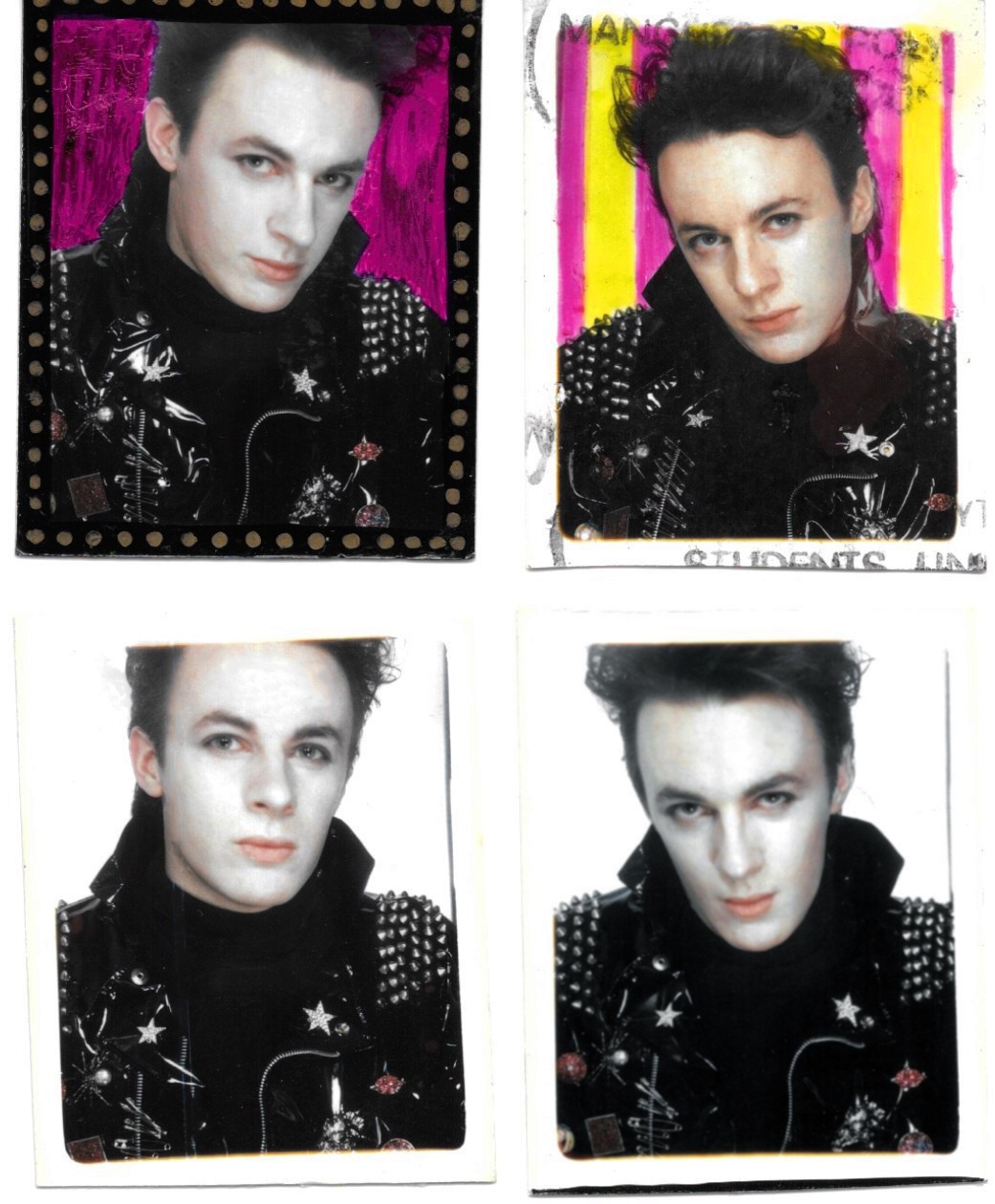
The 80's was an amazing era to live through and a challenge to keep up with the latest looks and clothes. In an era when no one had any money, so you had to improvise and make them yourself, supplemented by school trips to London, where our subversive English teacher would allow us to sneak off to Hyper Hyper in Kensington, and to trawl the Kings Road studying punks and Vivienne Westwood clothes rather than the stuffy British Museum like the rest of the school.
In this pre-internet/mobile era, photography was a luxury and affordable cameras were very basic, so the images are fuzzy and often out of focus, the one place you could experiment was a photo booth (in Woolworths), so i present a collection of images that record various hair styles and looks, if you felt bold you could even do nudes in these booths.
Post A levels, aged 18 you could use the free grant and (no longer) free education system to go and study and importantly live anywhere. I chose a foundation year in art at Derby then went North to Manchester to study fashion, this was a game changer. The first day at Art School I was surrounded by freaks and a whole gamut of queerness. Activism, subversion and radical views were mandatory, the library was stocked with Robert Mapplethorpe and Tom of Finland, and people passed around homemade zines.
In Manchester the Grass Roots bookshop on Newton St became a haven for understanding queer life and culture through books that were only available (it seemed) here, reading Numbers and City of Night by John Rechy blew my mind, at the arts cinemas in Derby (the Metro) and at the Cornerhouse in Manchester, seeing queer films filled the mind with possibilities and strange desires. You became aware of gayness, lesbian lust and queer folk, but it was still very closeted, hidden in plain sight, you looked for the clues and figured out which seemingly blank door opened into a gay bar or club, there was no rainbow capitalism at this point.
The first big Manchester pride event was Mardi Gras in 1991, which started as a small parade, and quickly became a loud one, Manchester being a party town, seized the opportunity to create an insane weekend of filthy fun. All of this was before Queer As Folk (1999) which overnight changed an underground culture into a mainstream one, Canal St went from a dodgy dark street to a brash loud funfair, and it was never the same again.
I just found these, very grainy pictures. I shot them on black and white film at the Stop the Clause 28 march in Manchester February 1988, an amazing day. I hired a car and drove up with friends from Exeter where I was doing a work placement.
Today Andrew is curating the spring screenings for Pink Palace the award winner weekly queer film club at the Rio. Everything you research on queer history drops you down another amazing rabbit hole, there's so much to unearth and celebrate, the joy then comes in sharing these stories.
Váradi Béla
Celebrated photo-journalist Váradi Béla captures Traveller Pride at ‘50 Years of Pride’ in 2022 and at London Trans Pride. ‘Traveller Pride’ are a group made up of Travellers (used as inclusively as possible) who are LGBT+ (likewise) who want to provide a platform for our intersectional community. We act as a network that can provide guidance, support and information to make life easier for LGBT+ Travellers as well as providing essential services, meetup spaces and collaborating with other organisations to make them more welcoming to us.’
For decades Váradi has been integrating their two main interests; creating visual art and representing the life and interest of Roma people in Hungary. As a young adult, Váradi worked as a local councillor and also spent time painting pictures. Starting a career in journalism helped Váradi to find an accommodating platform for their passion for visual and social representation. Váradi was one of the founding members of Europe’s first Roma radio, RadioC. As the far-right Orban government started its crackdown on the public broadcaster, it became increasingly hard to maintain my editorial freedom. Váradi resigned in 2011 and moved to the UK. Starting life in a new country forced them to reconsider how they could create socially conscious visual art. See more at www.studio90s.com
Kiku Aruba Basu
Finding my way in the world from one moment to the next.
Aderonke Apata
'I can’t lay my hands on any pictures of me from my youth but here is my picture when I qualified as a Barrister (unregistered) in 2022. I have grown from hiding, shielding and being fearful of whom I am, to an open and proud me! Couldn't imagine some decades ago, that I can someday, identify openly and proudly as a lesbian. Standing up for myself and others in quest for justice when faced with the threat of deportation back to death, propelled me, a Microbiologist, someone with a Master of Public Health into changing careers to study law and was Called to the Bar of England and Wales following a successful Bar qualification as a Lawyer.'
It was at the Royal Courts of Justice in the Strand, London in 2015 ‘where a judge refused to believe that I was fleeing persecution and deserved asylum status simply because I have a child! It is inconceivable that in the UK, in this age, that a top government lawyer can express such a vile opinion in a court as if being a lesbian means being sterile or infertile! This kind of statement only goes to show that underbelly institutional homophobia is endemic in some parts of the establishment!’
Aderonke is the founder & CEO African Rainbow Family who connects and builds strength for the queer African diaspora in the UK and also currently campaigns to repeal Nigeria’s anti-gay law. Aderonke was added to the ‘Amnesty International UK's 'Suffragette Spirit Map of Britain' in 2018, she is also the winner of Activist of the Year at the ‘Sexual Freedom Awards’ 2018, Winner at the Ron Todd Foundation Equality Awards 2018, Winner, Attitude Pride Awards 2017, Winner, Positive Role Model for LGBT, National Diversity Awards, 2014
As Aderonke reminds us all, ‘I’m not free until everyone is free, we aren’t saved till all of us are safe.’
You can follow Aderonke on Twitter, Instagram, Facebook and LinkedIn, and African Rainbow Family on their website.










































